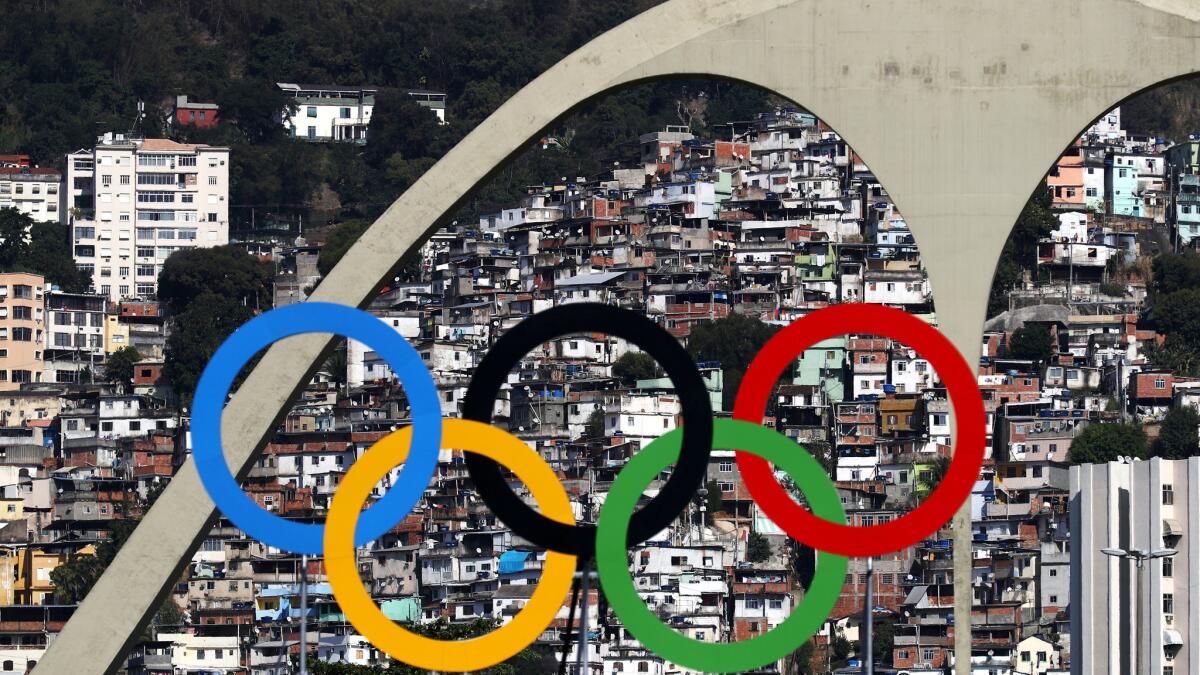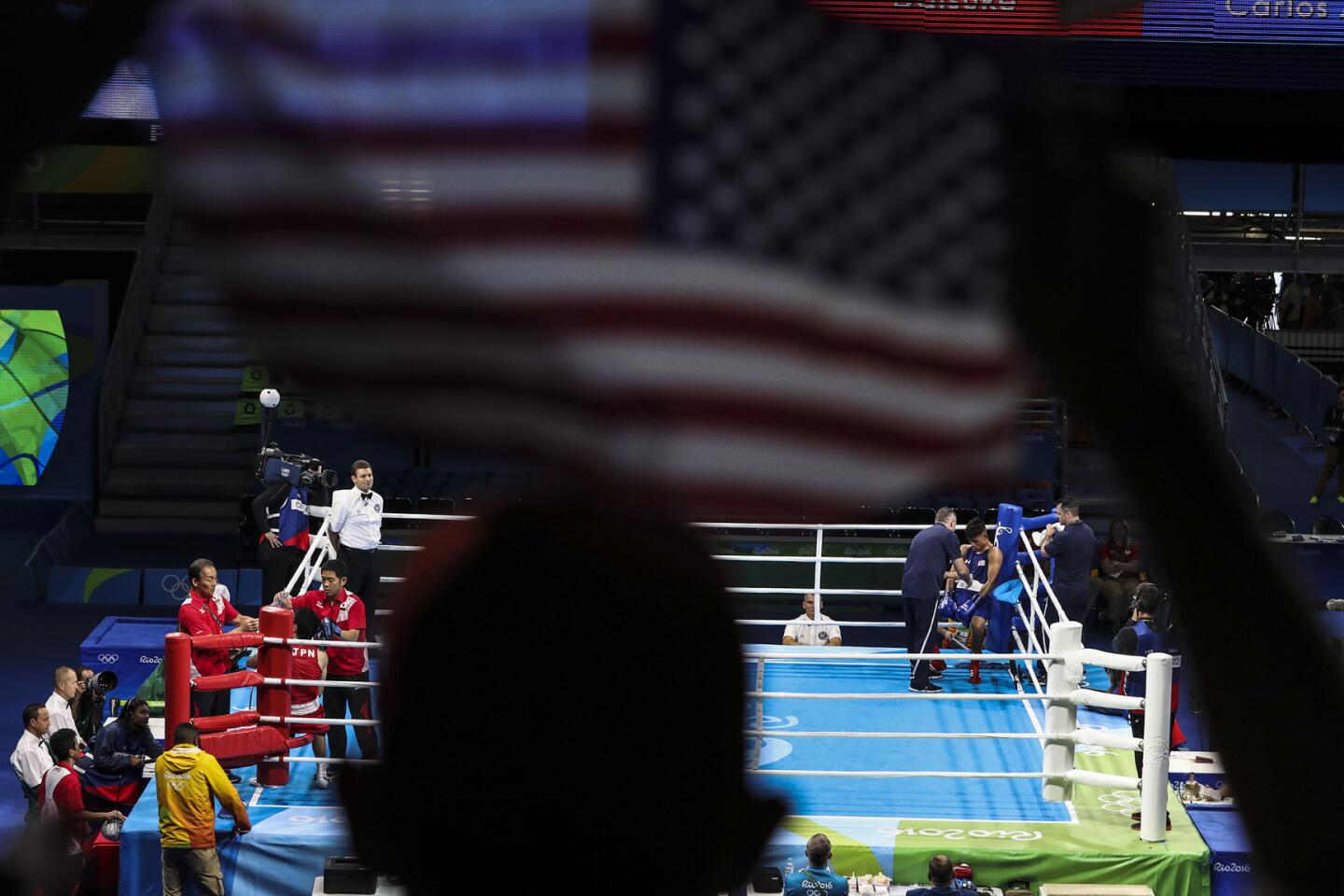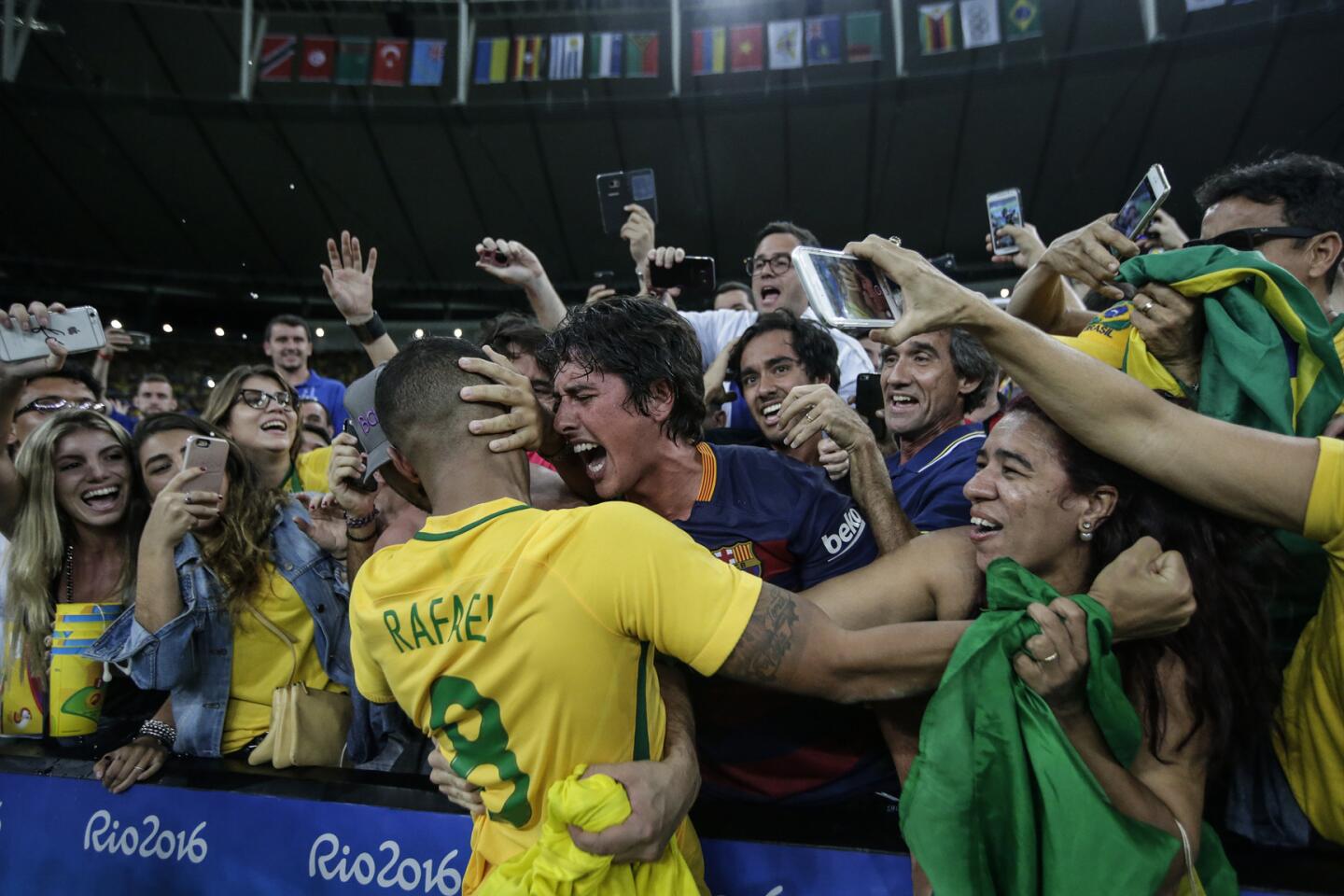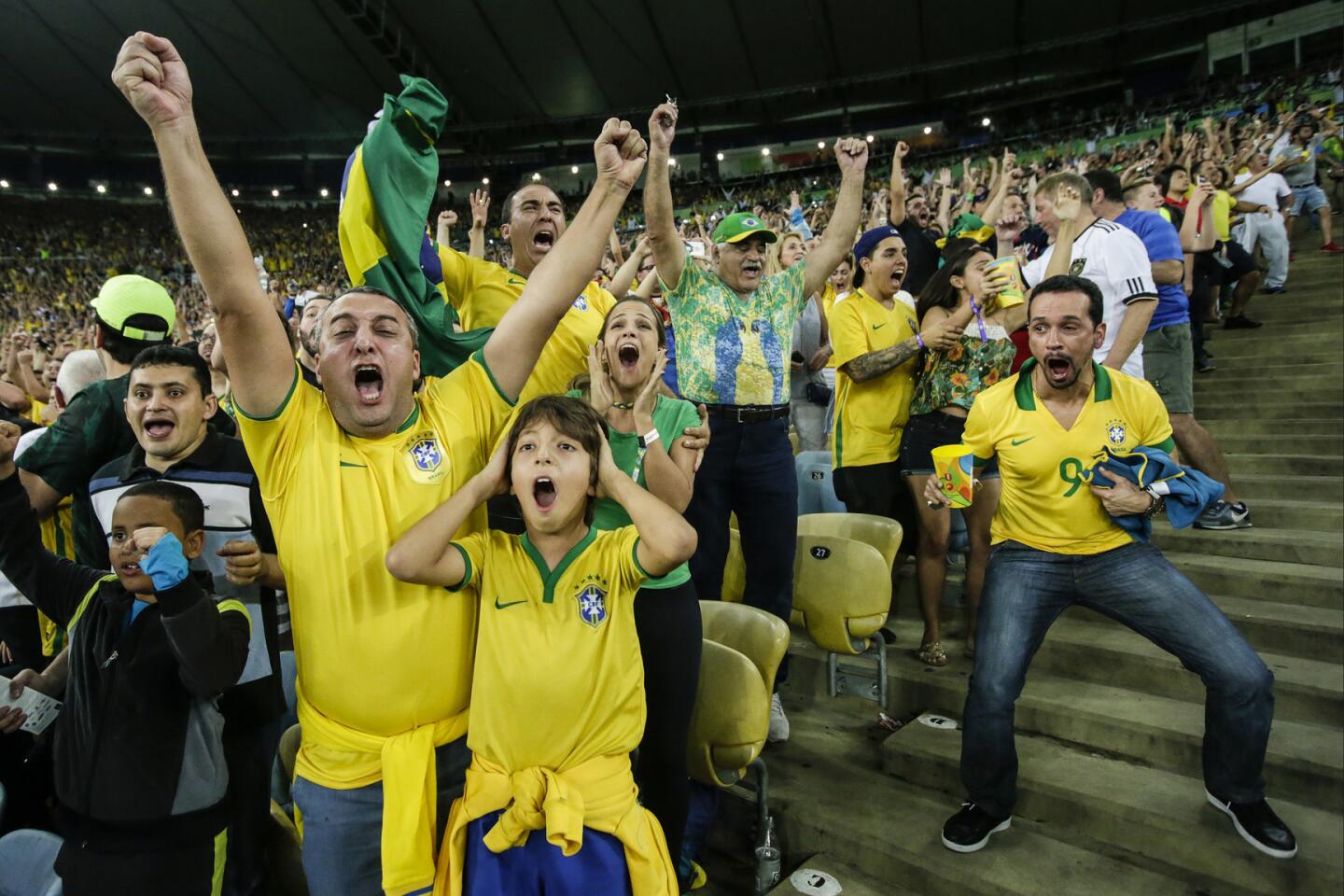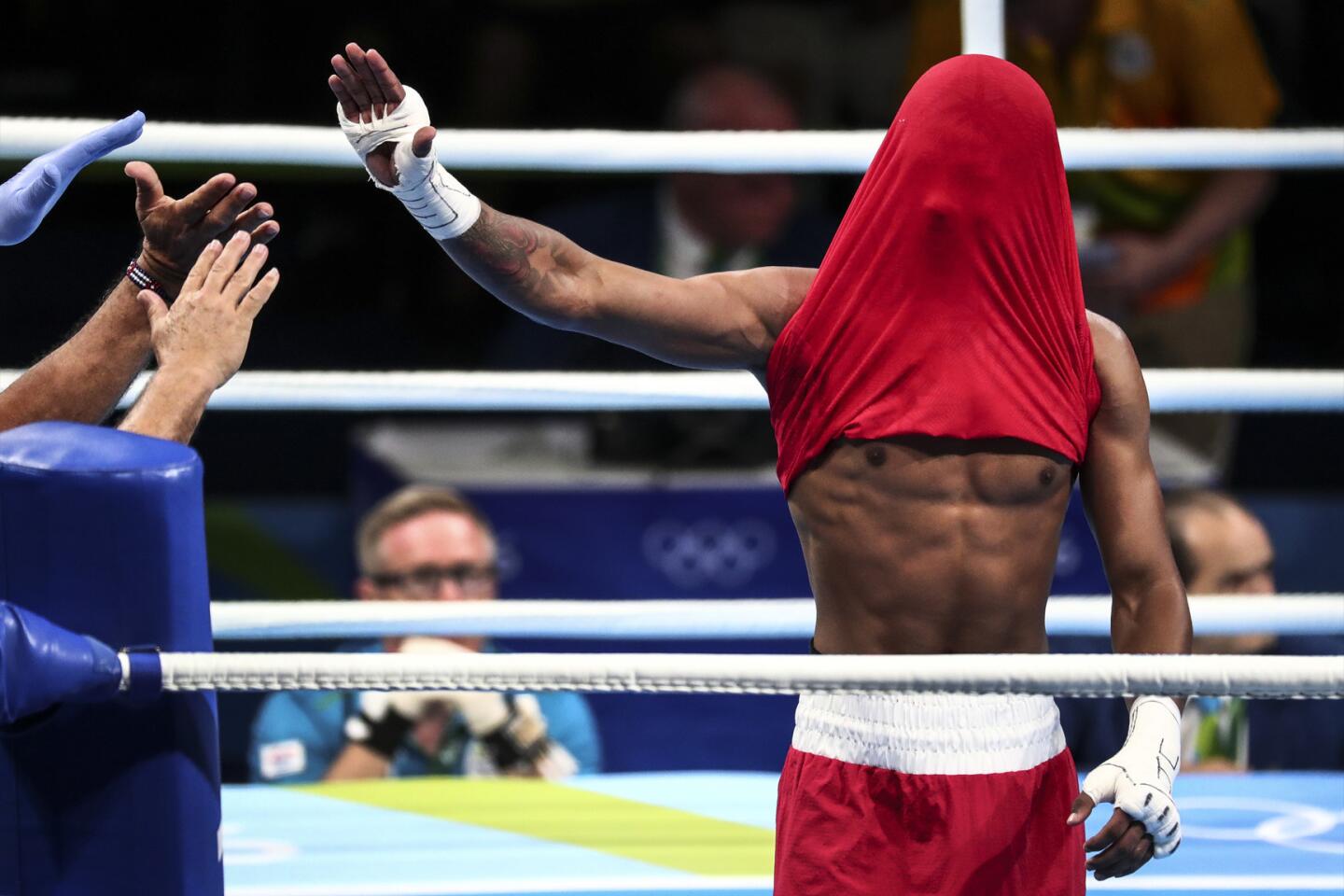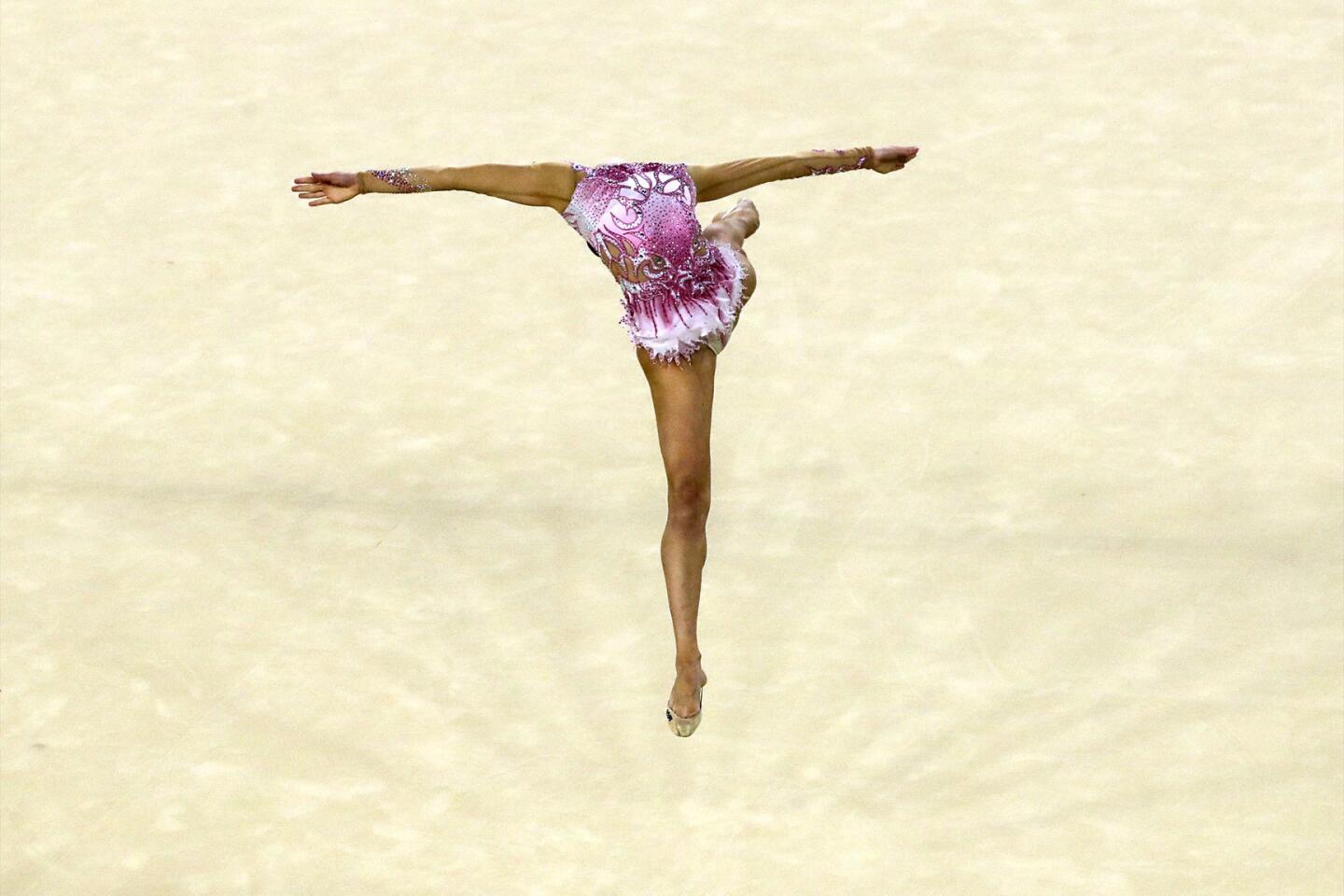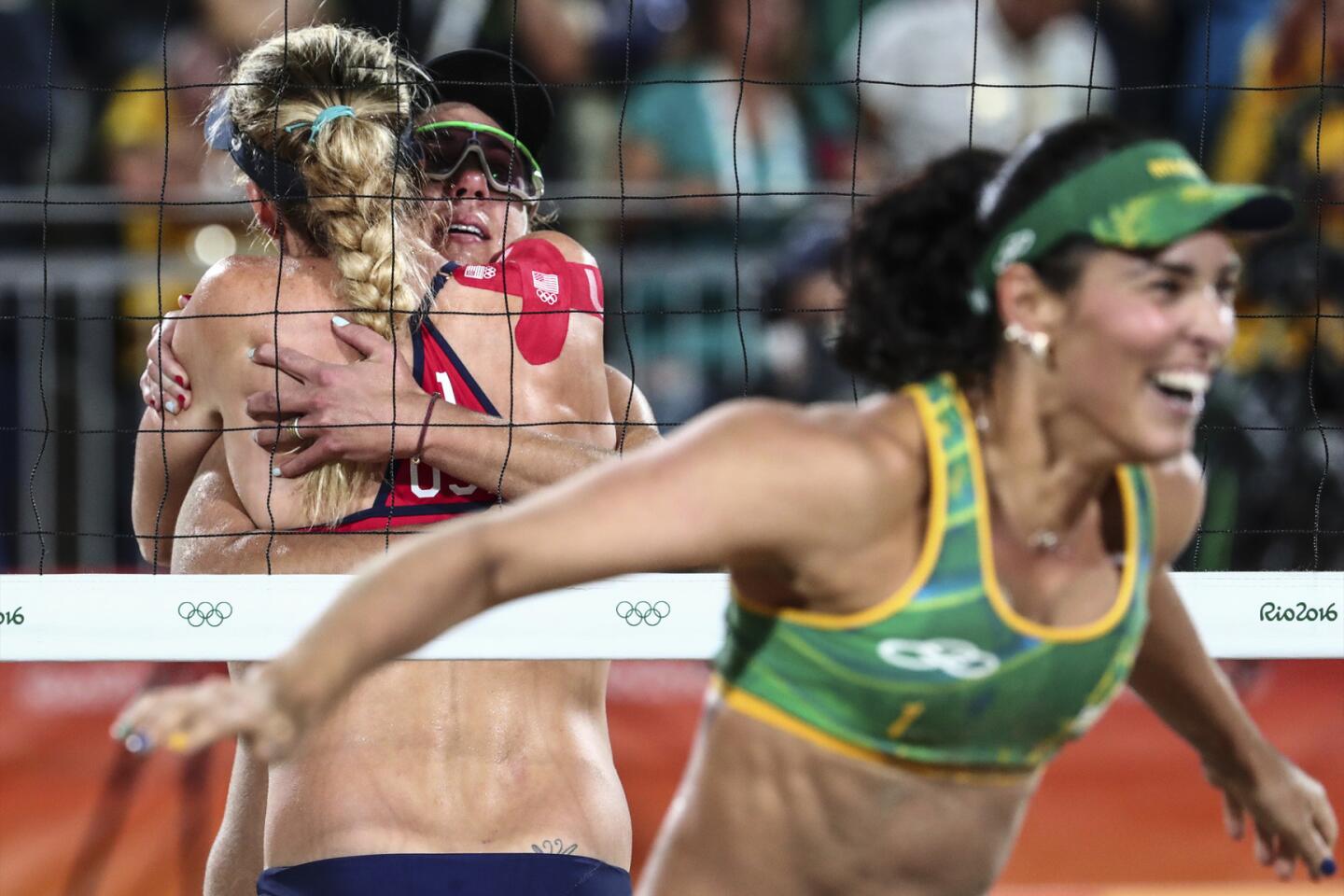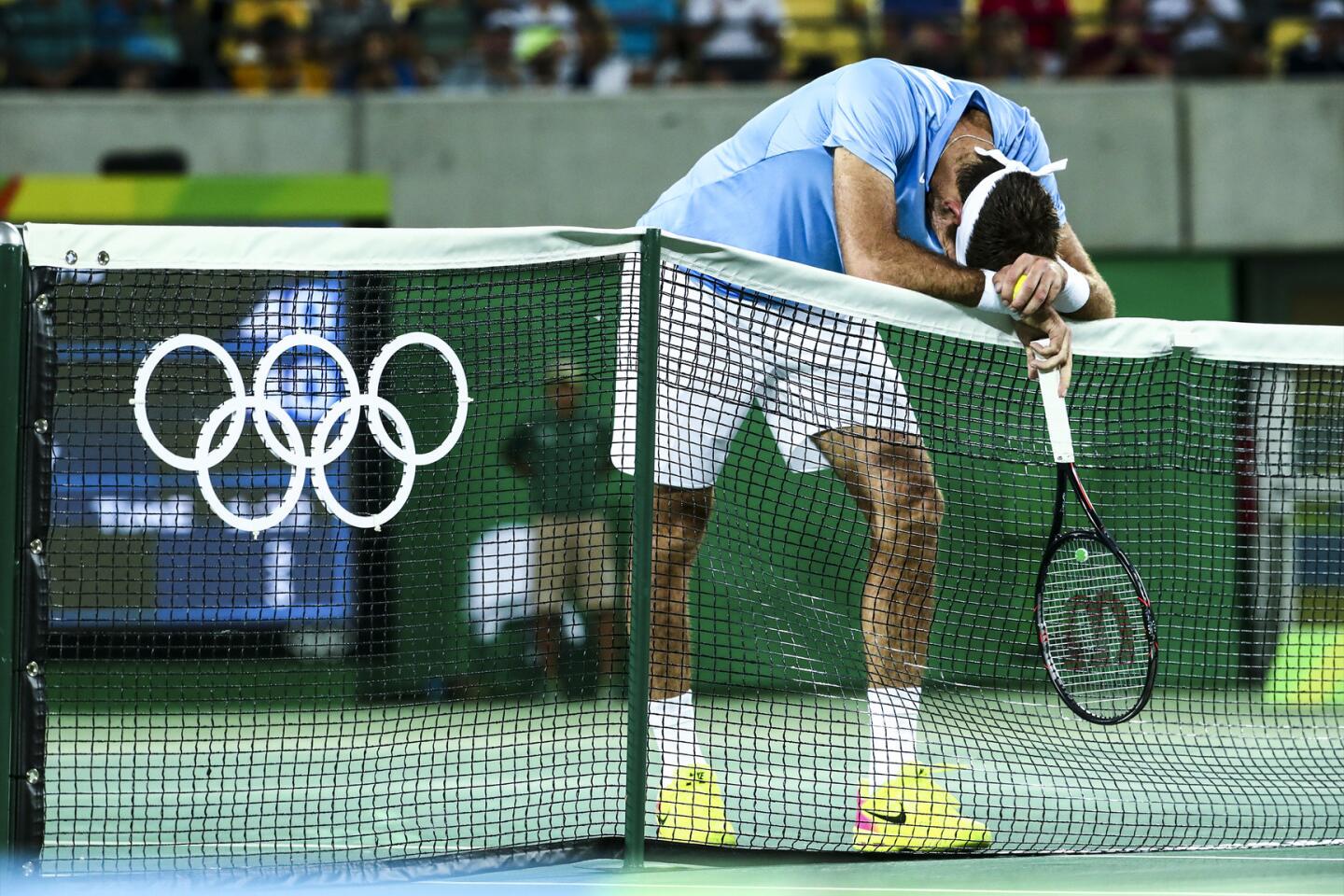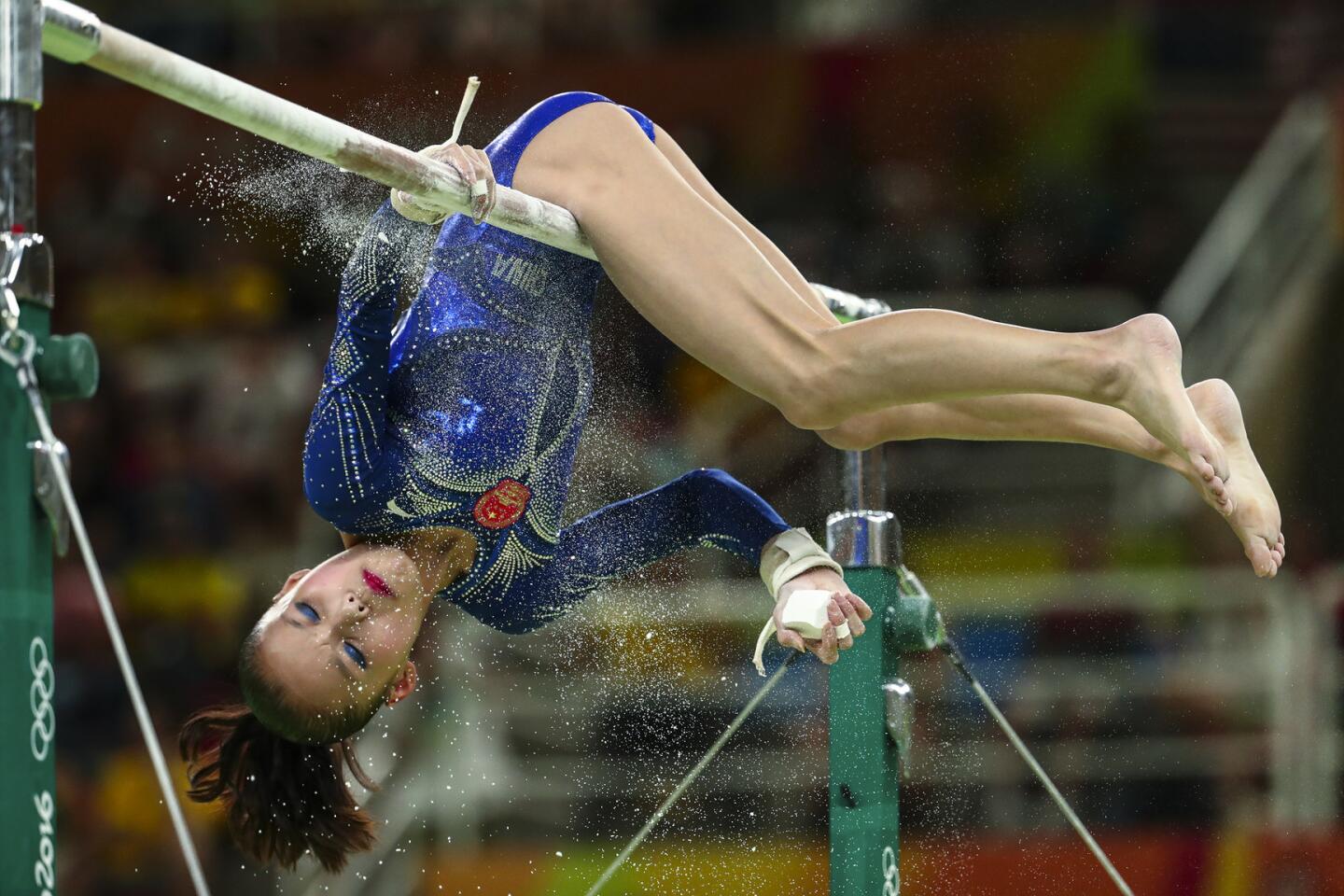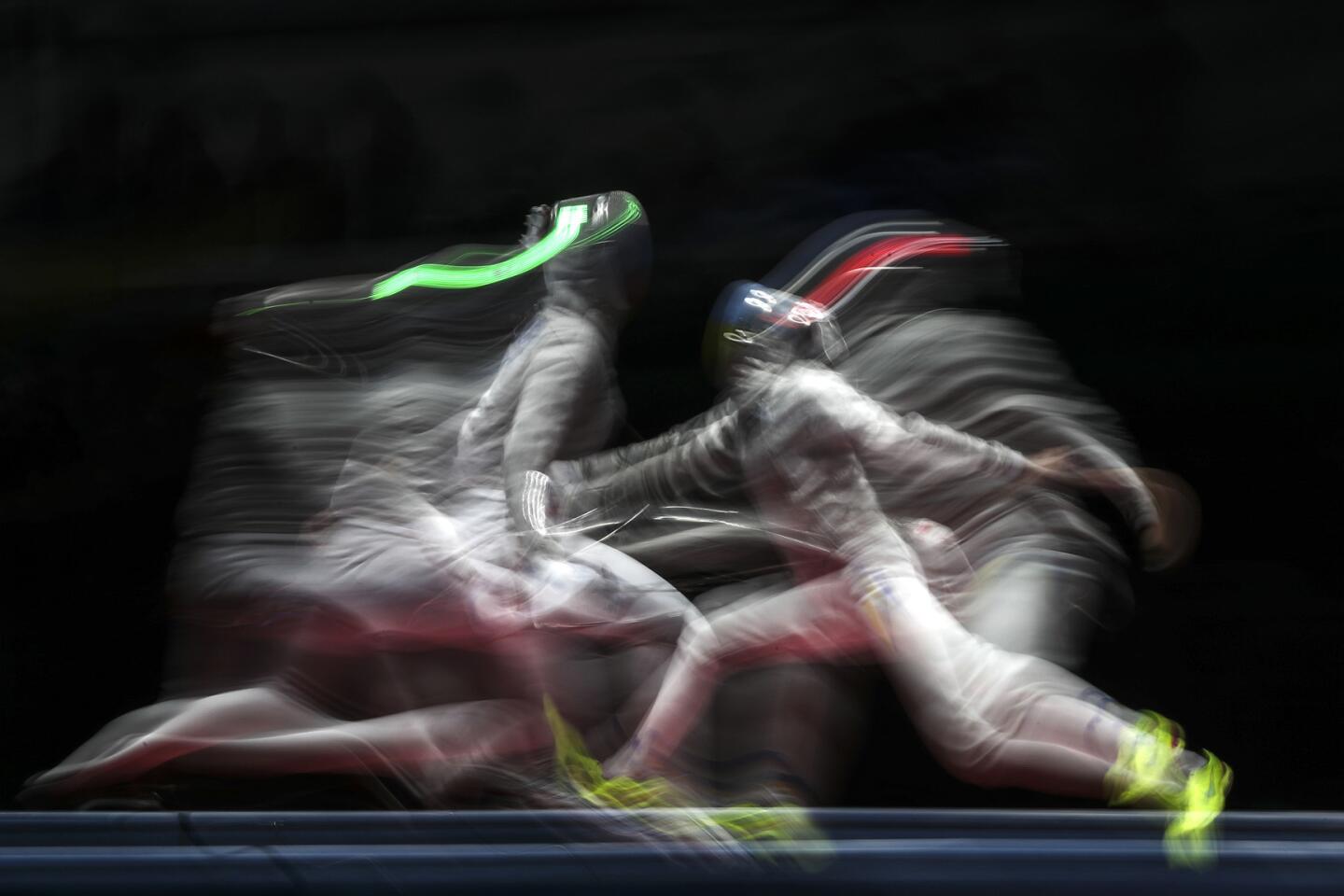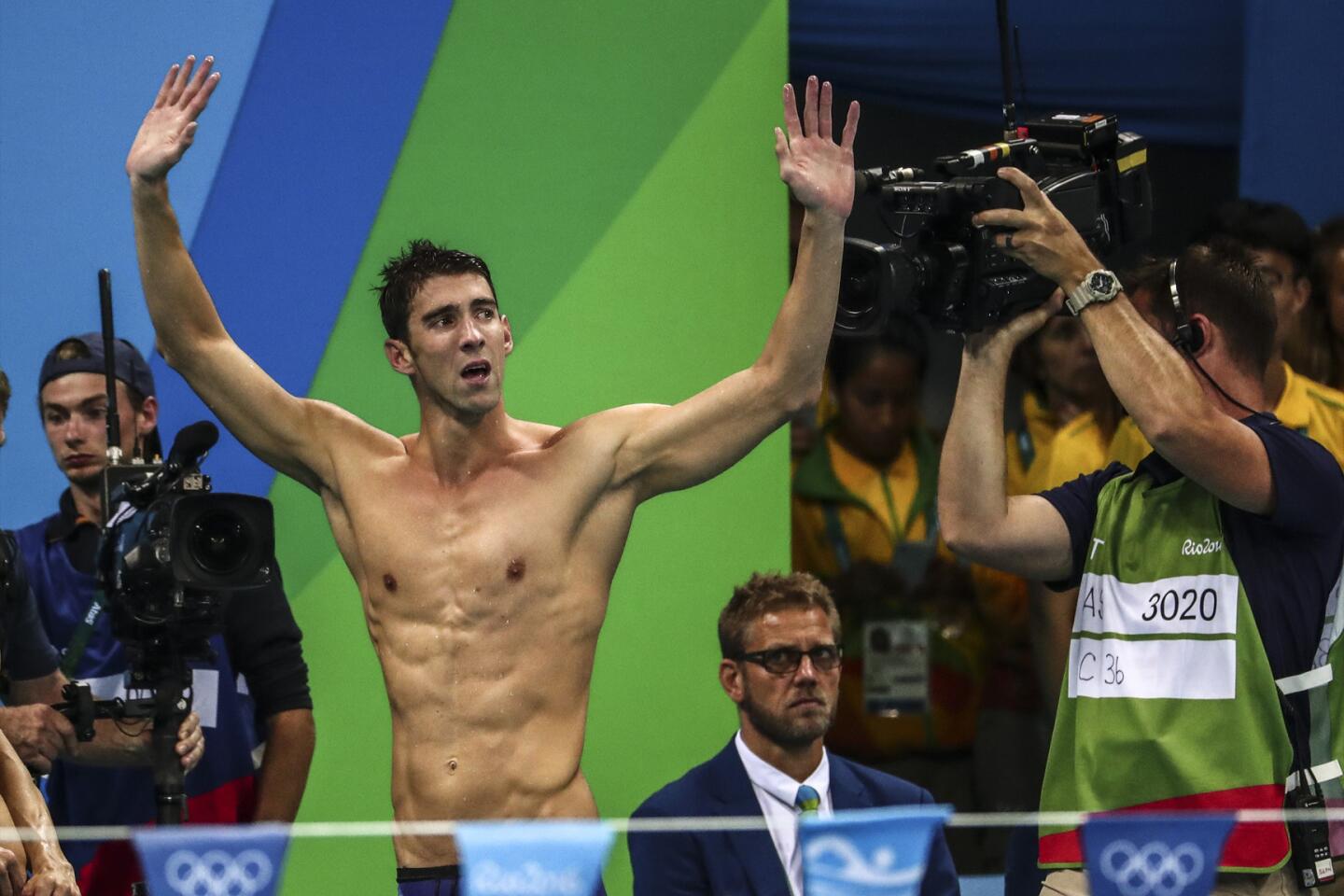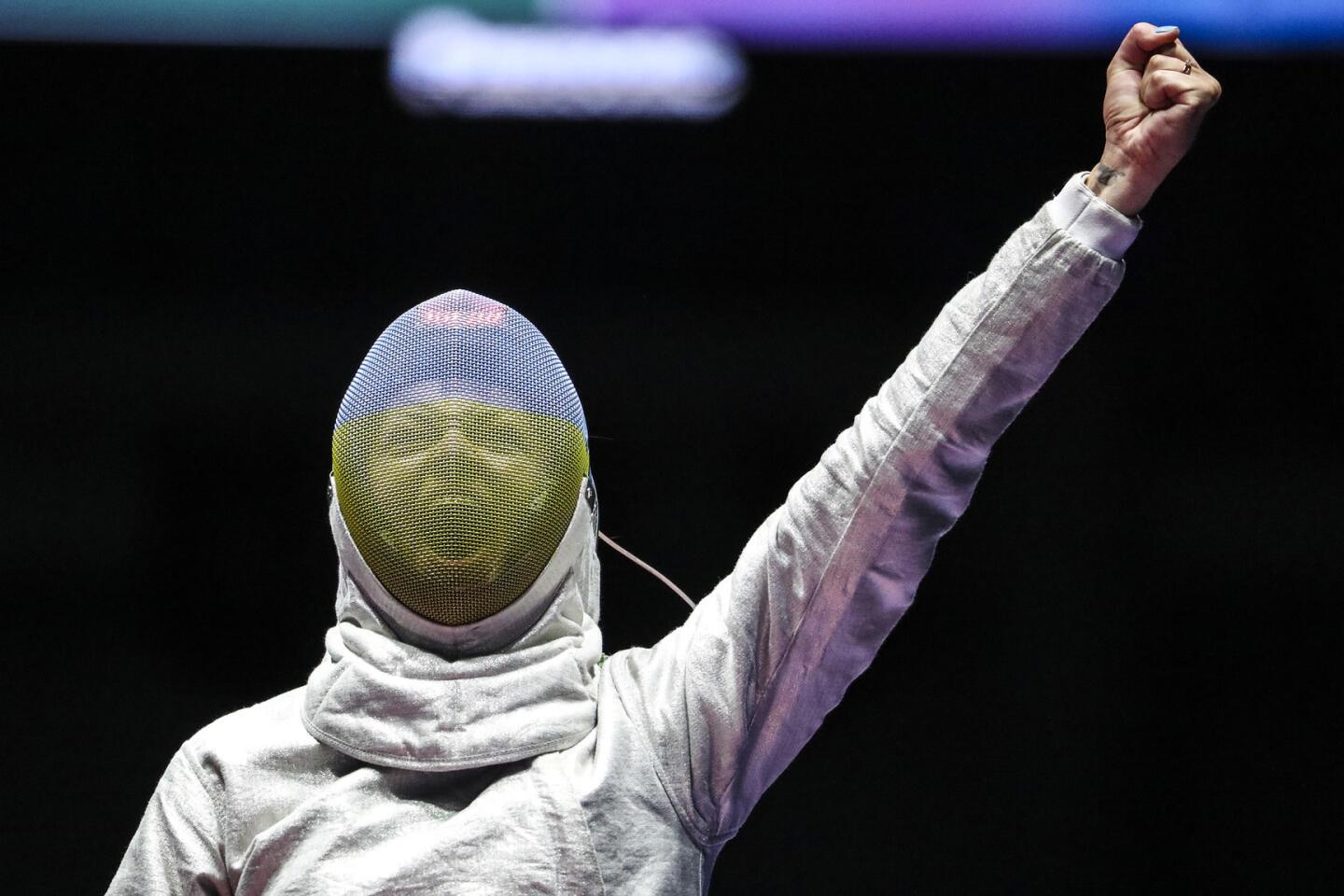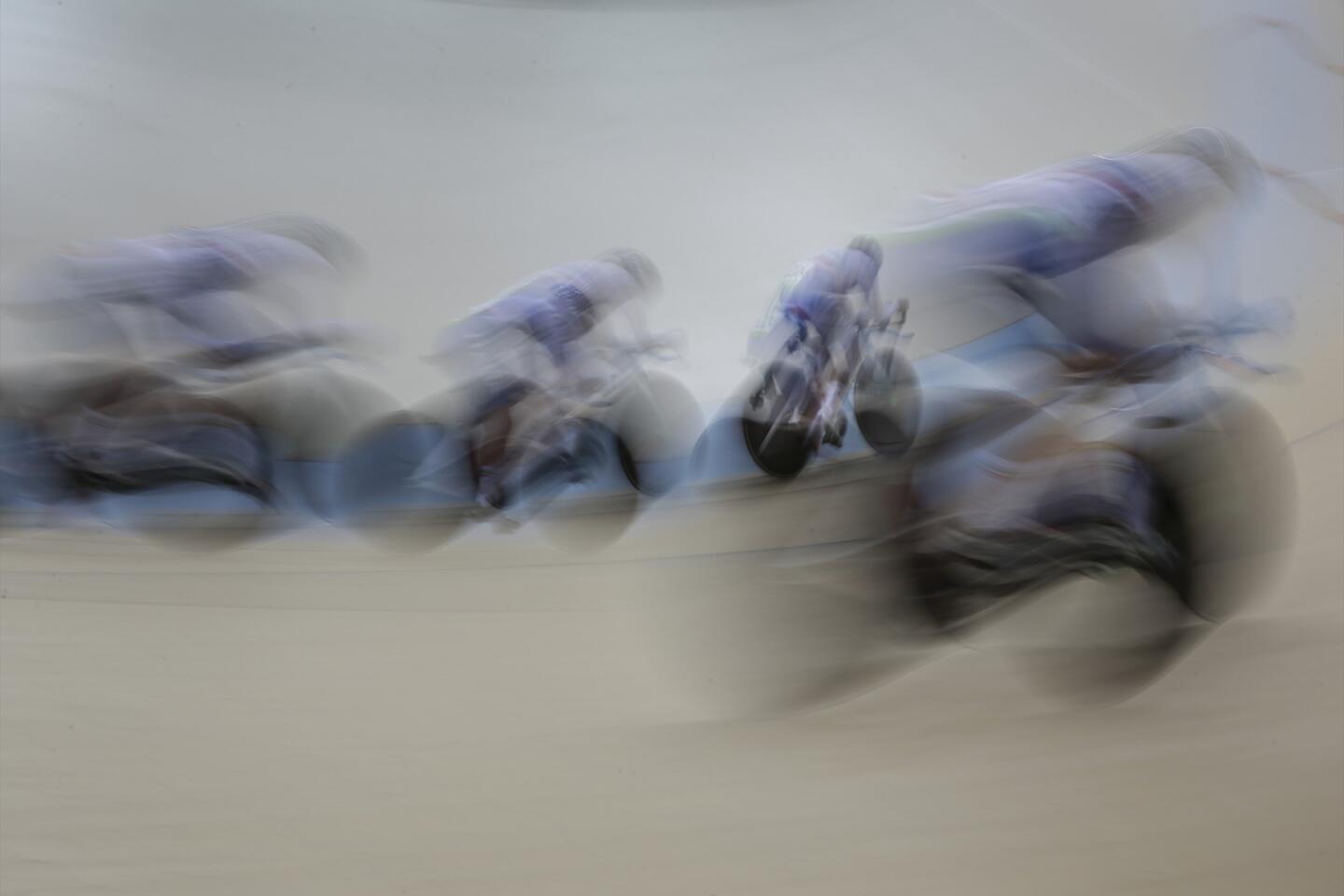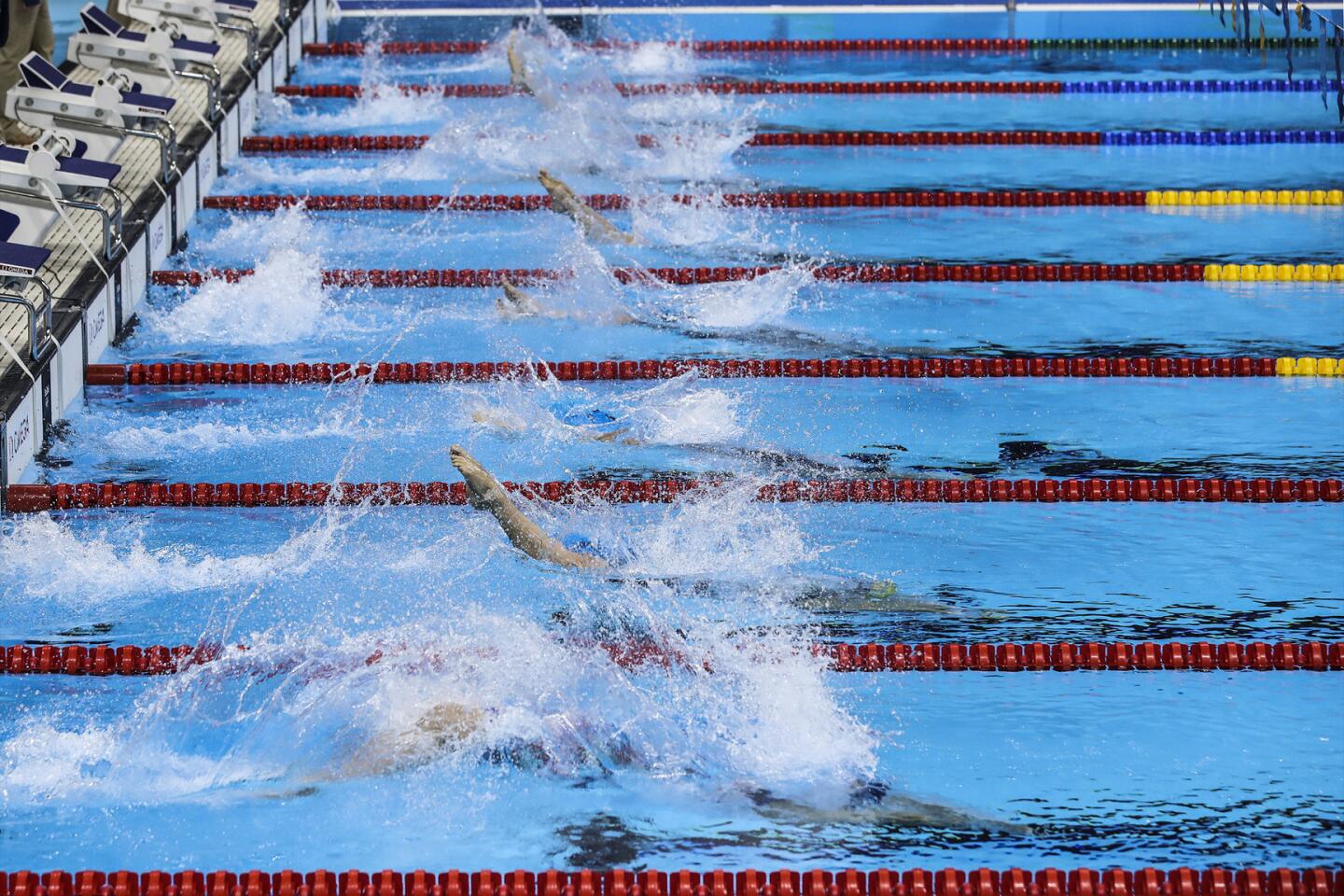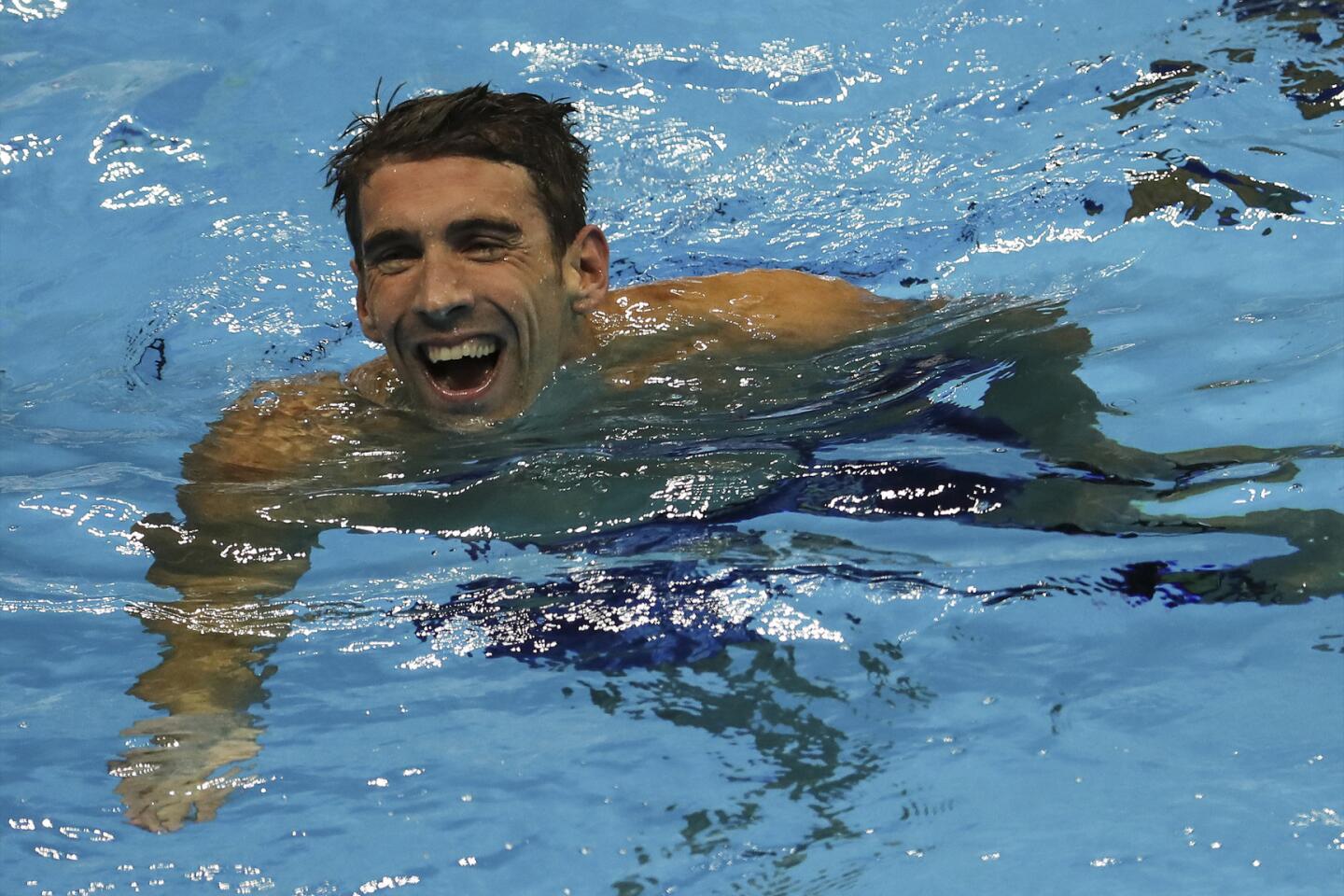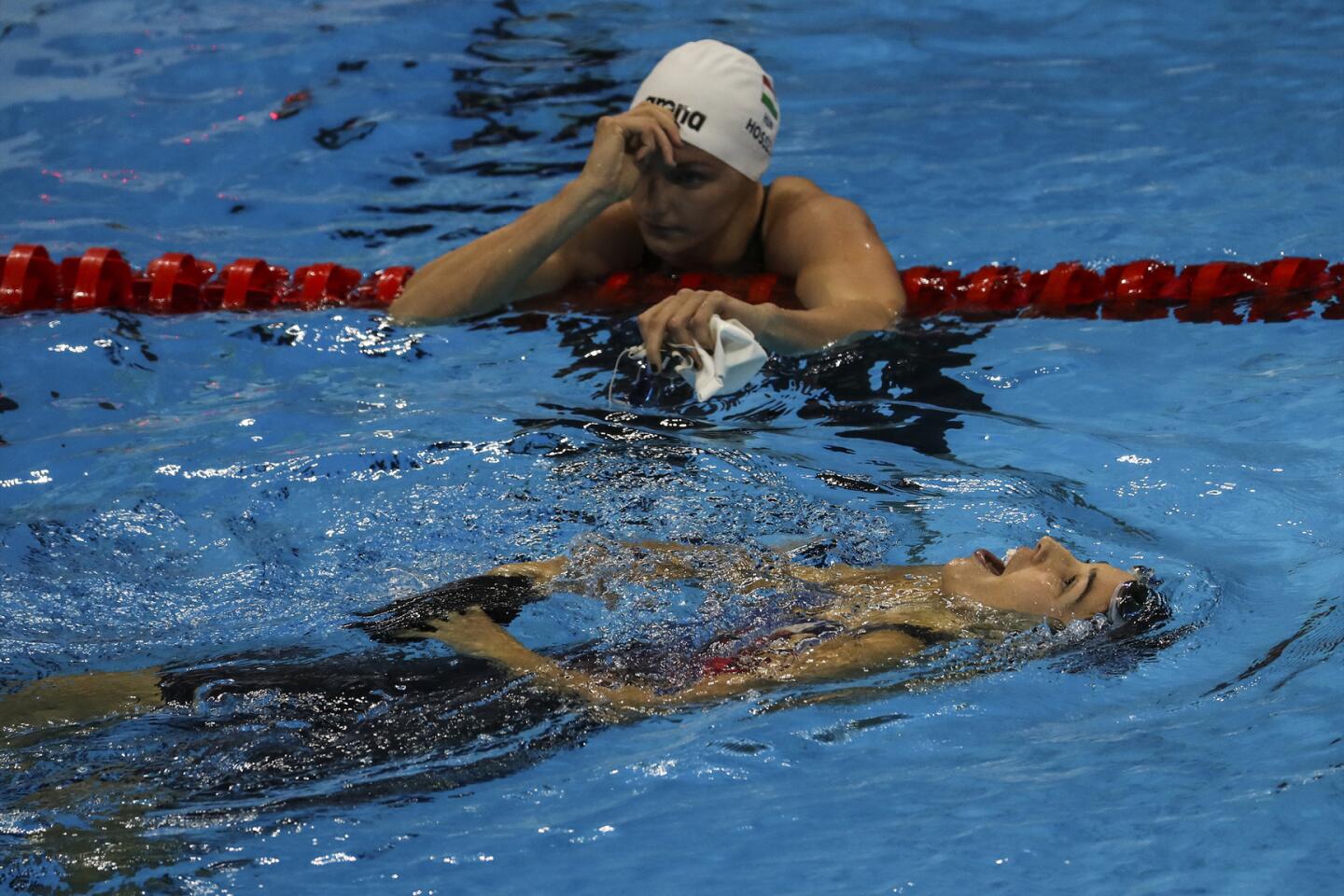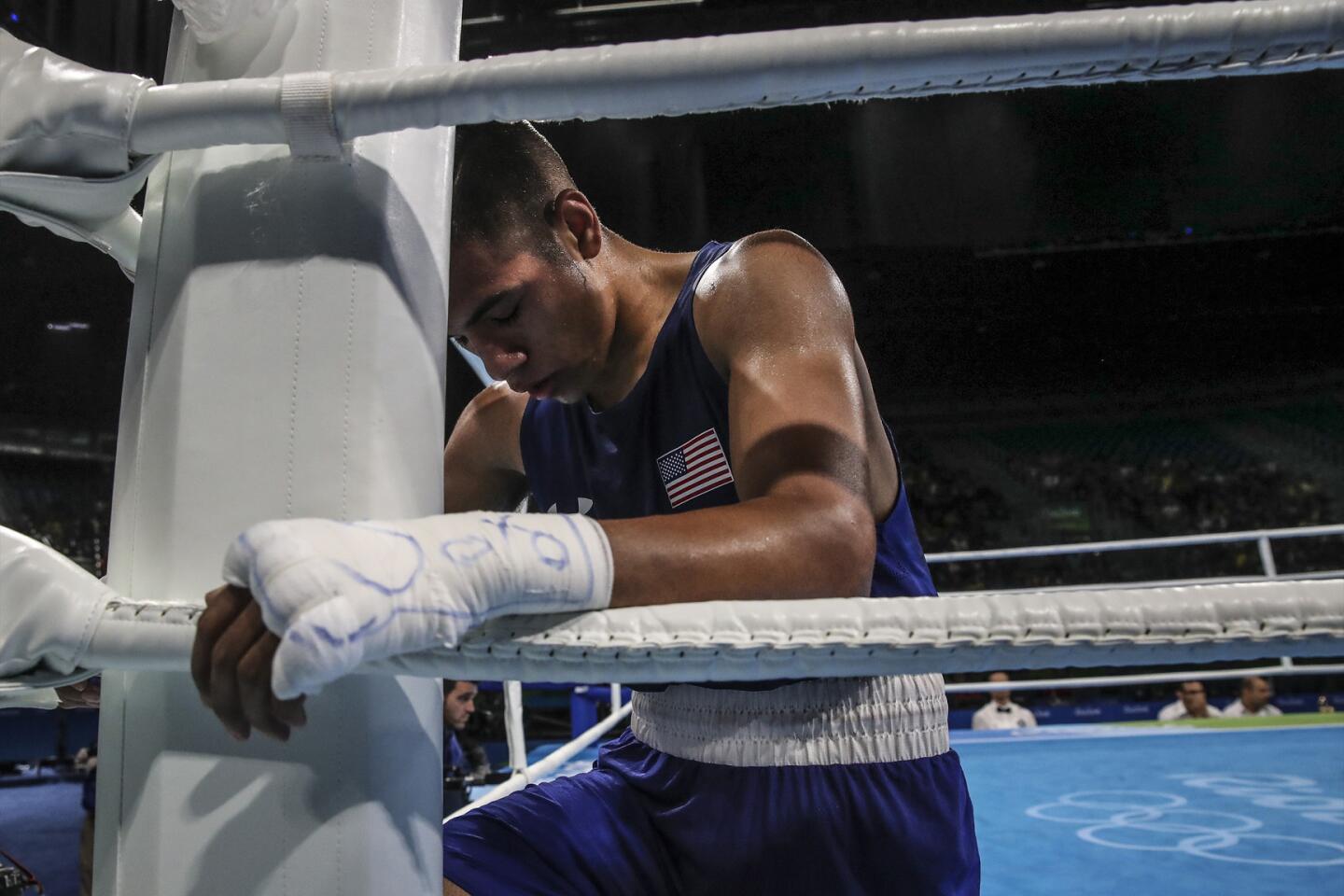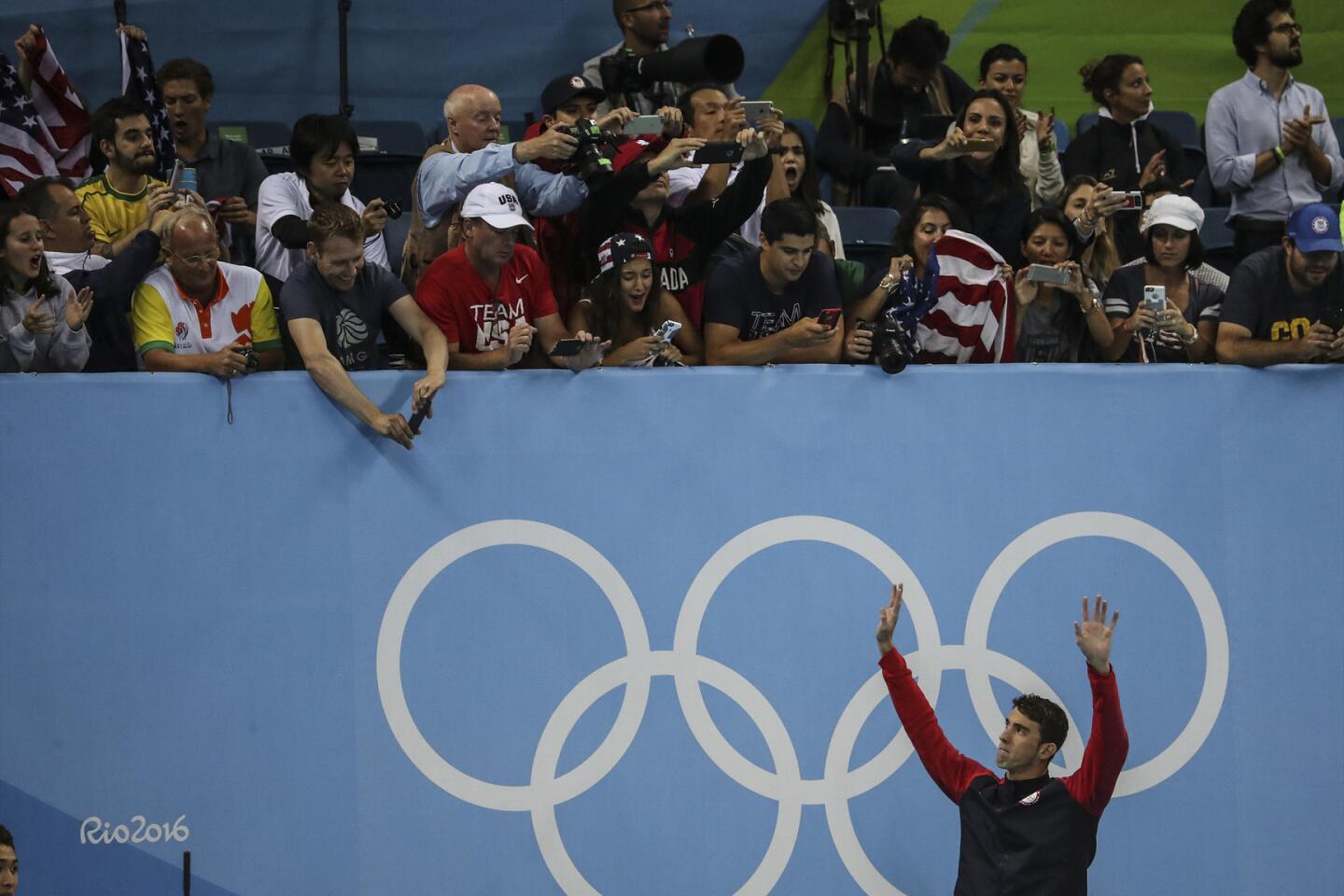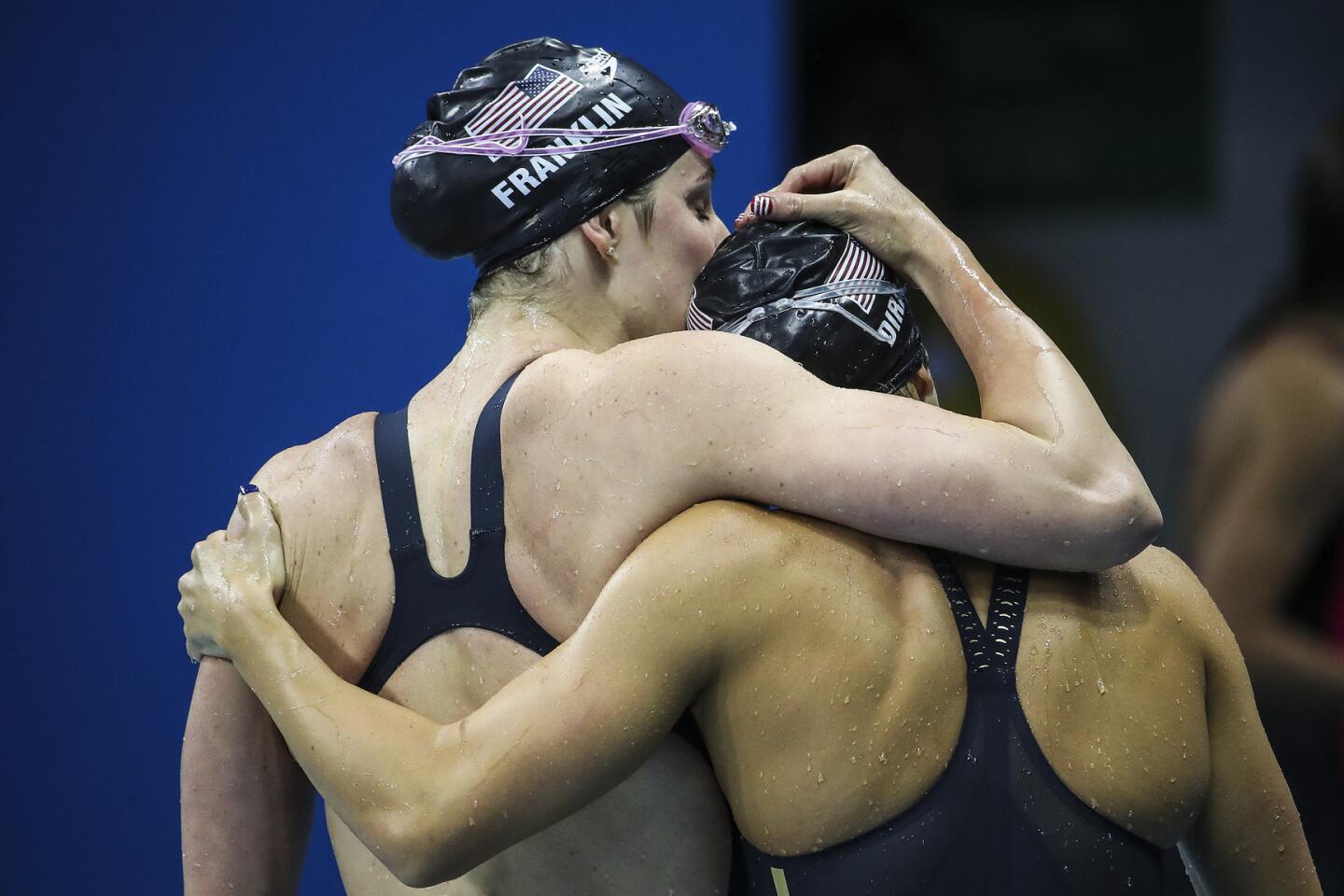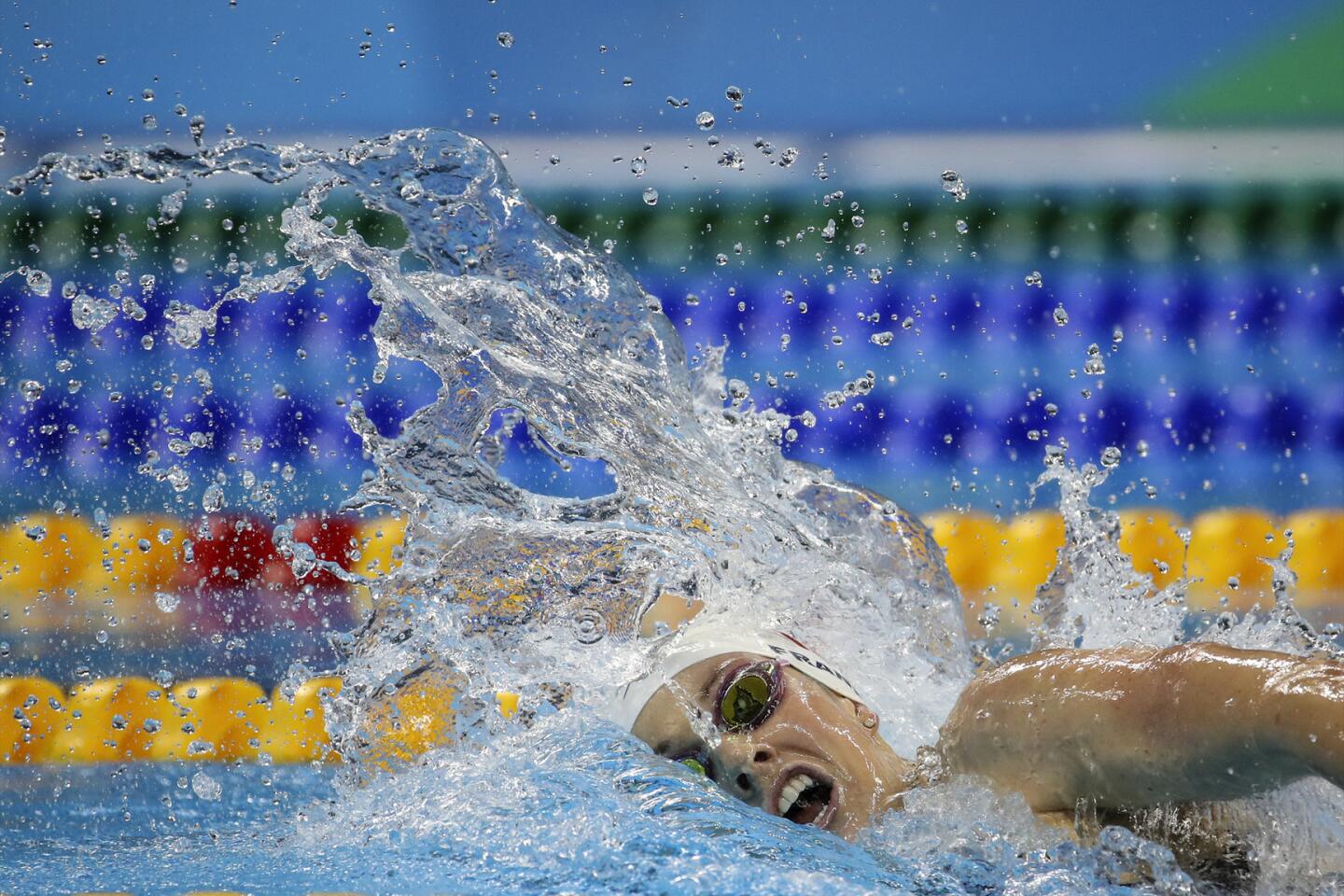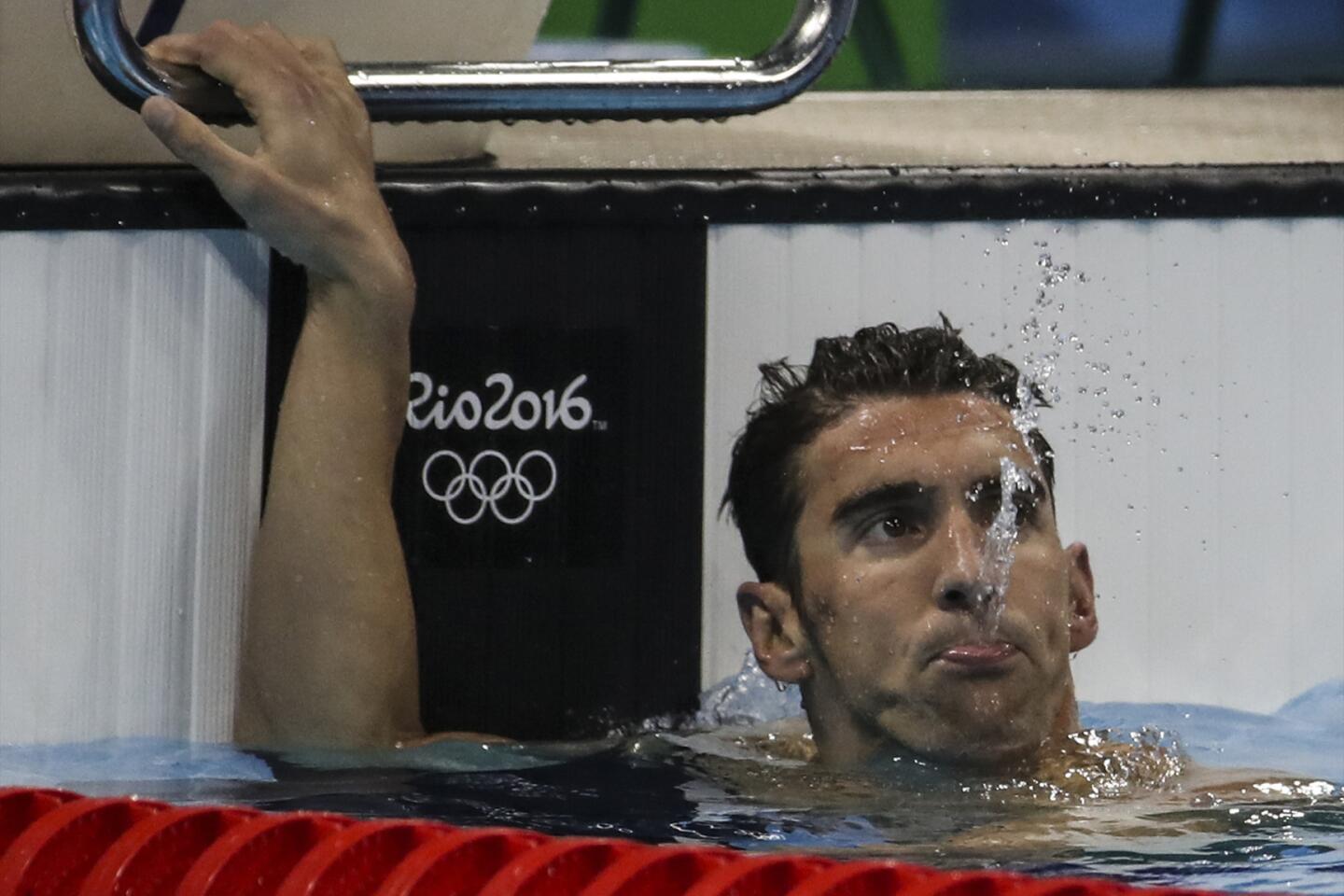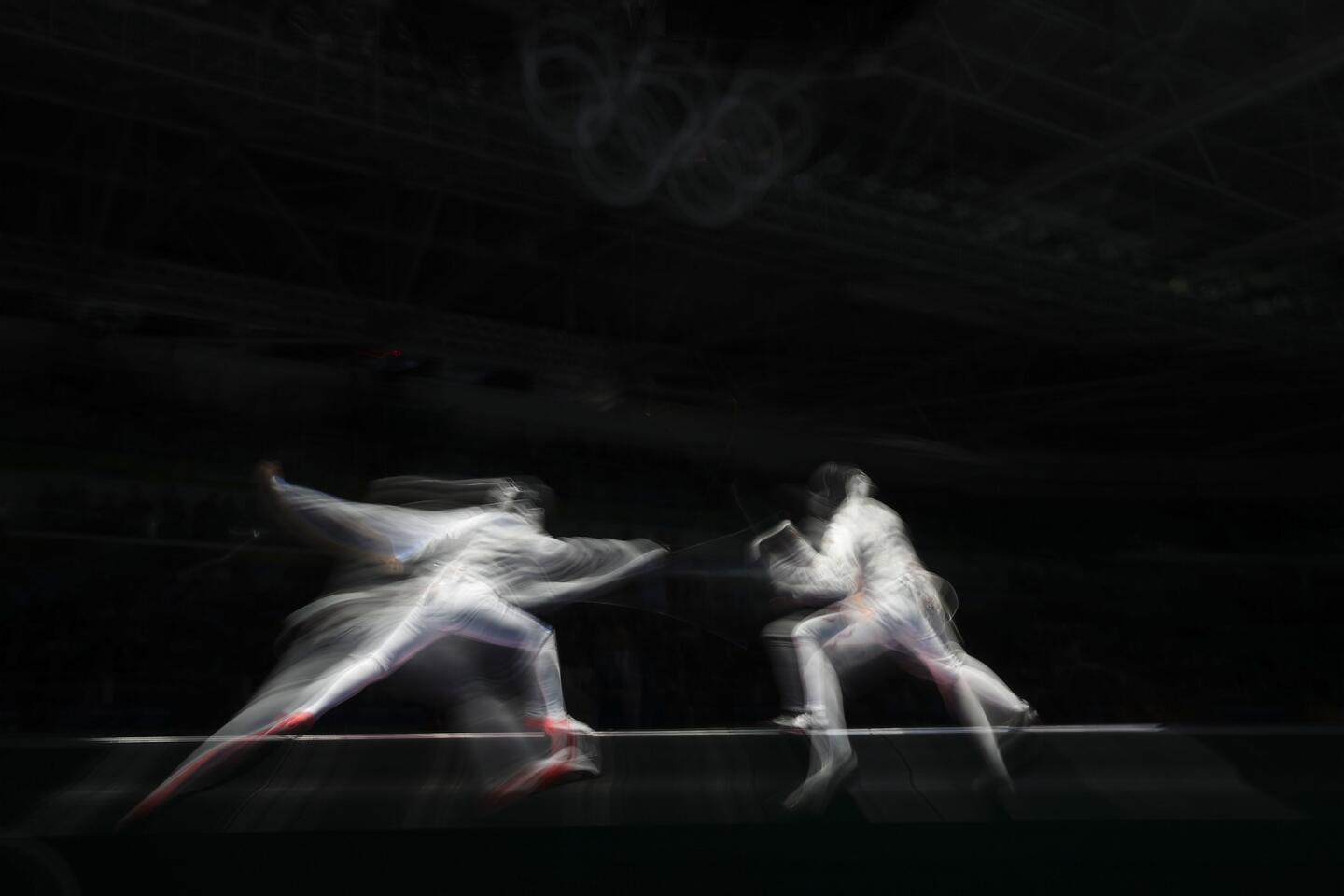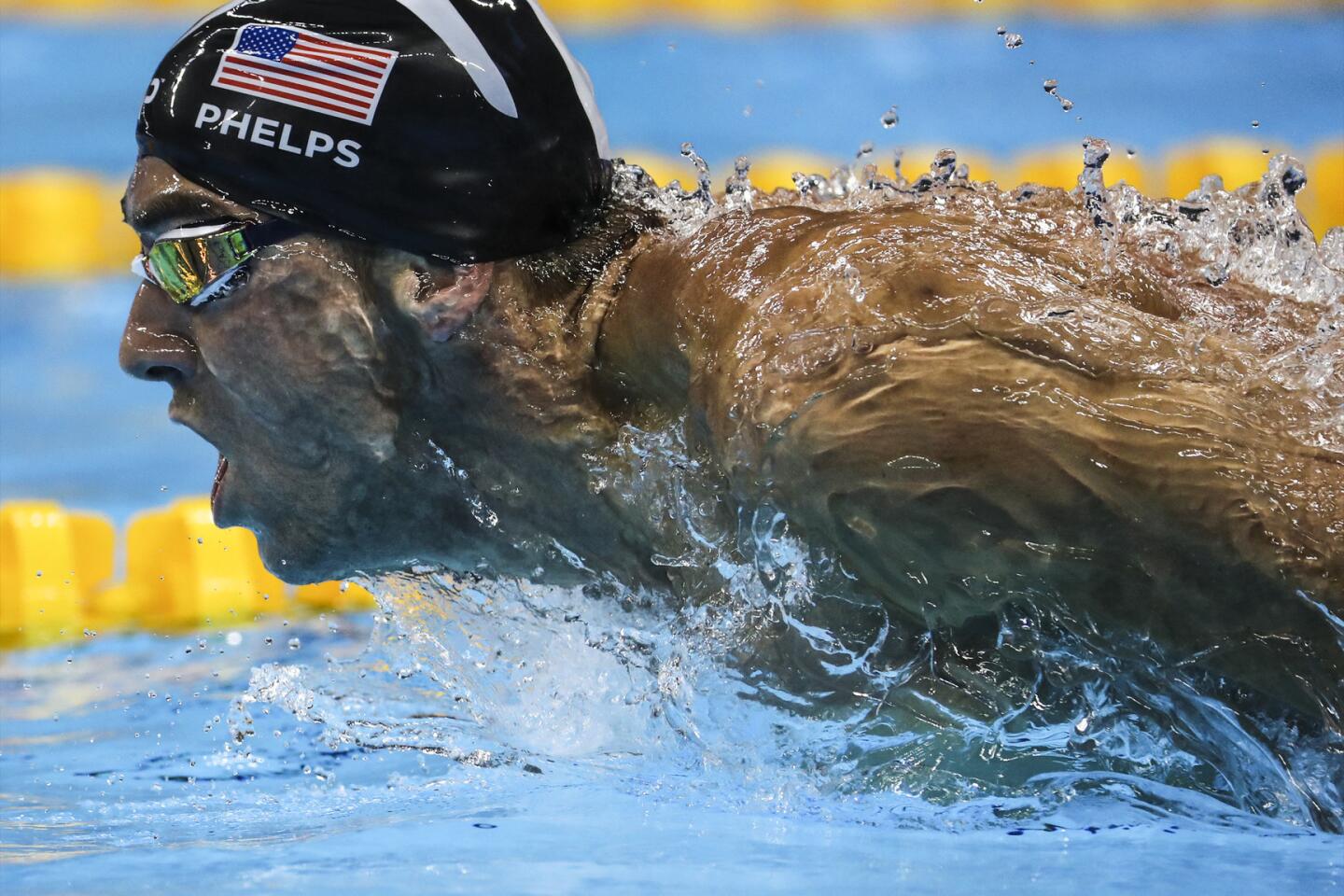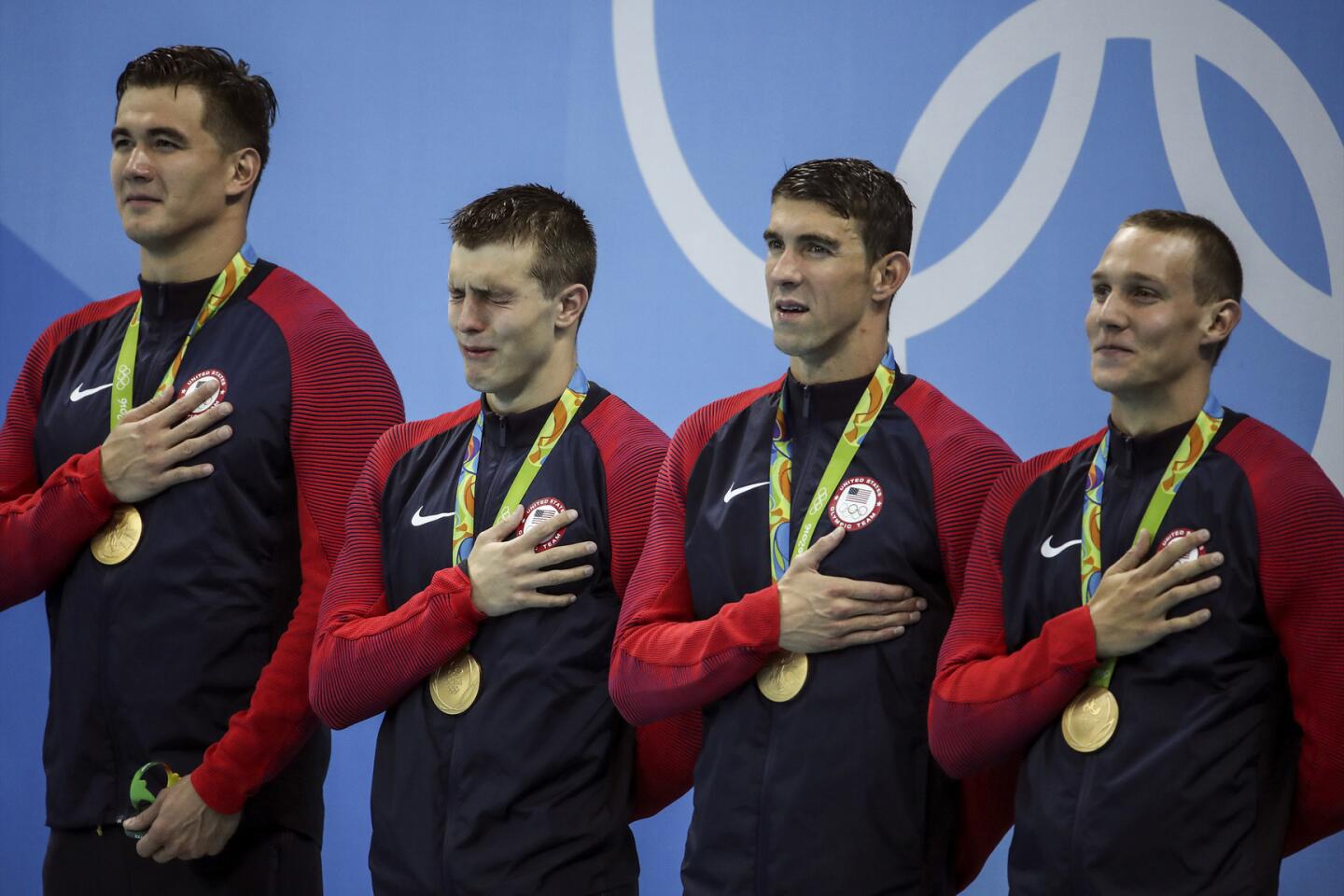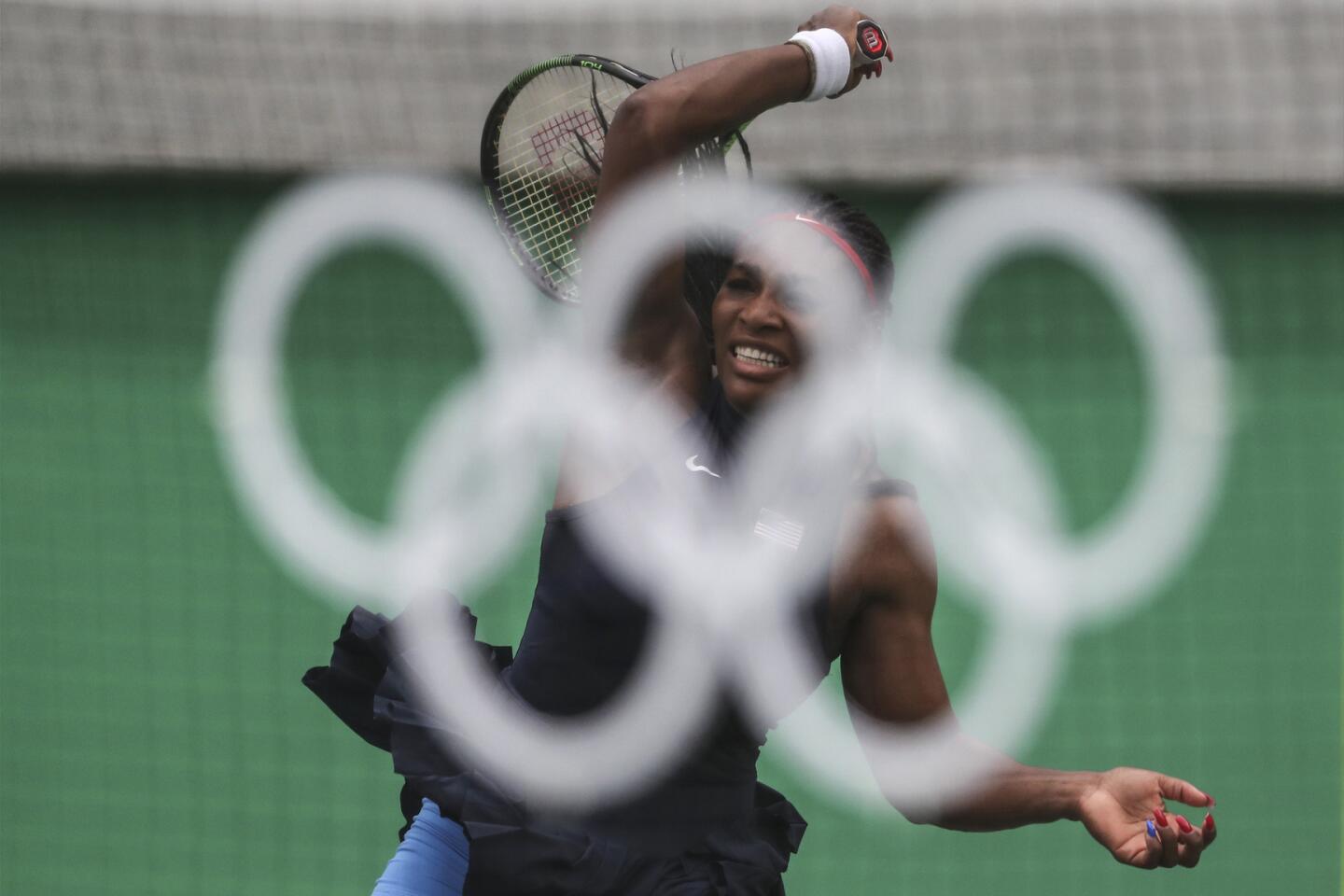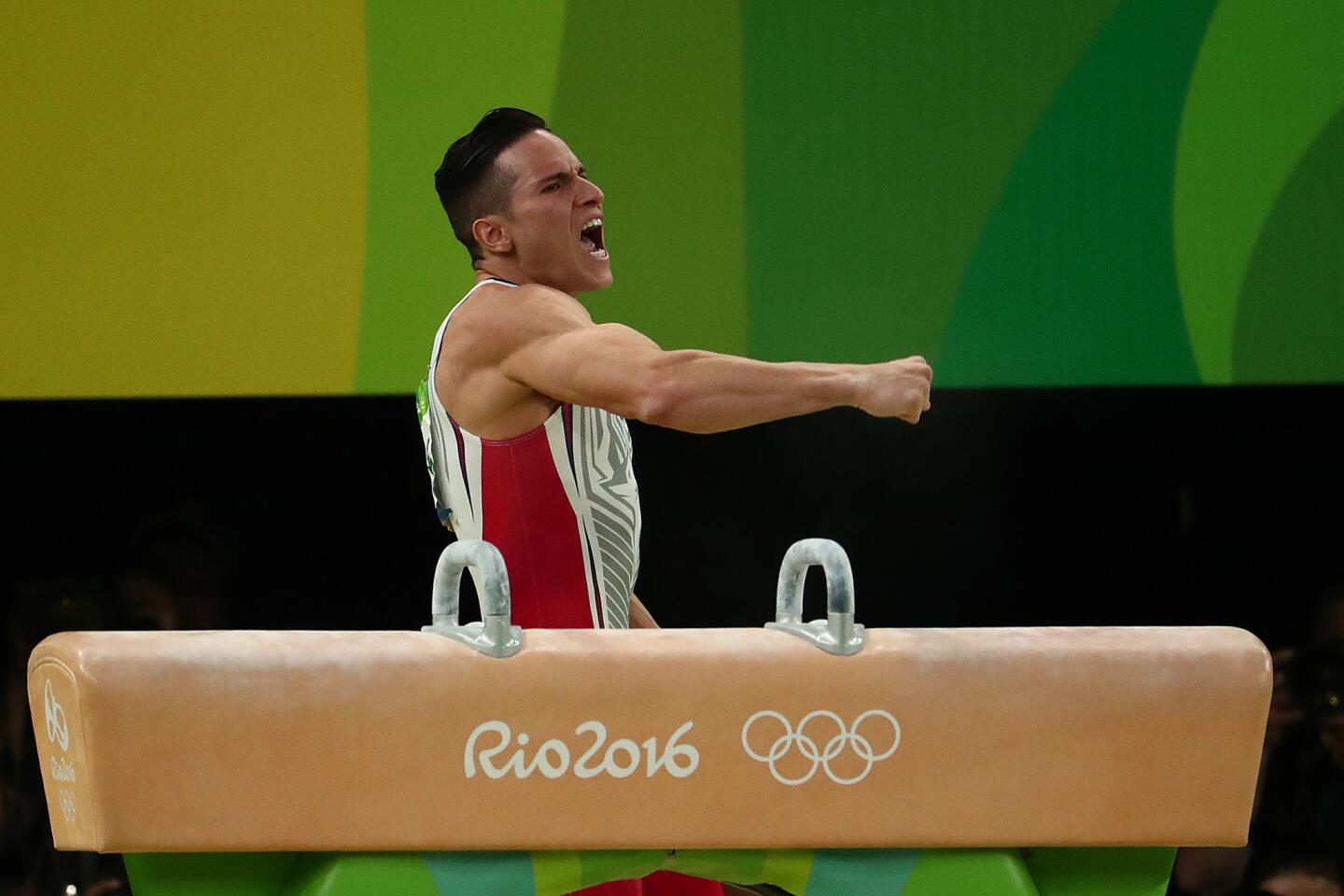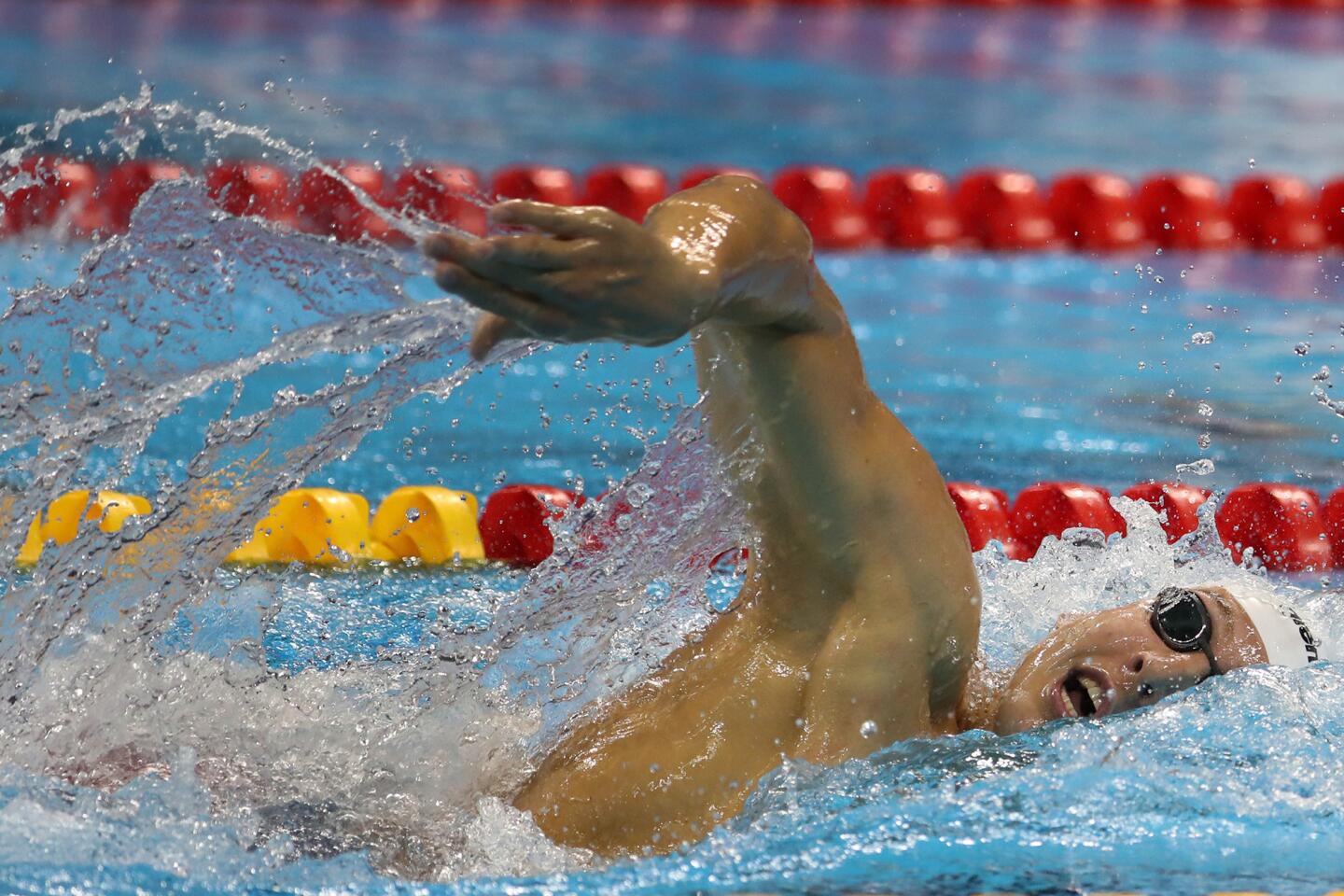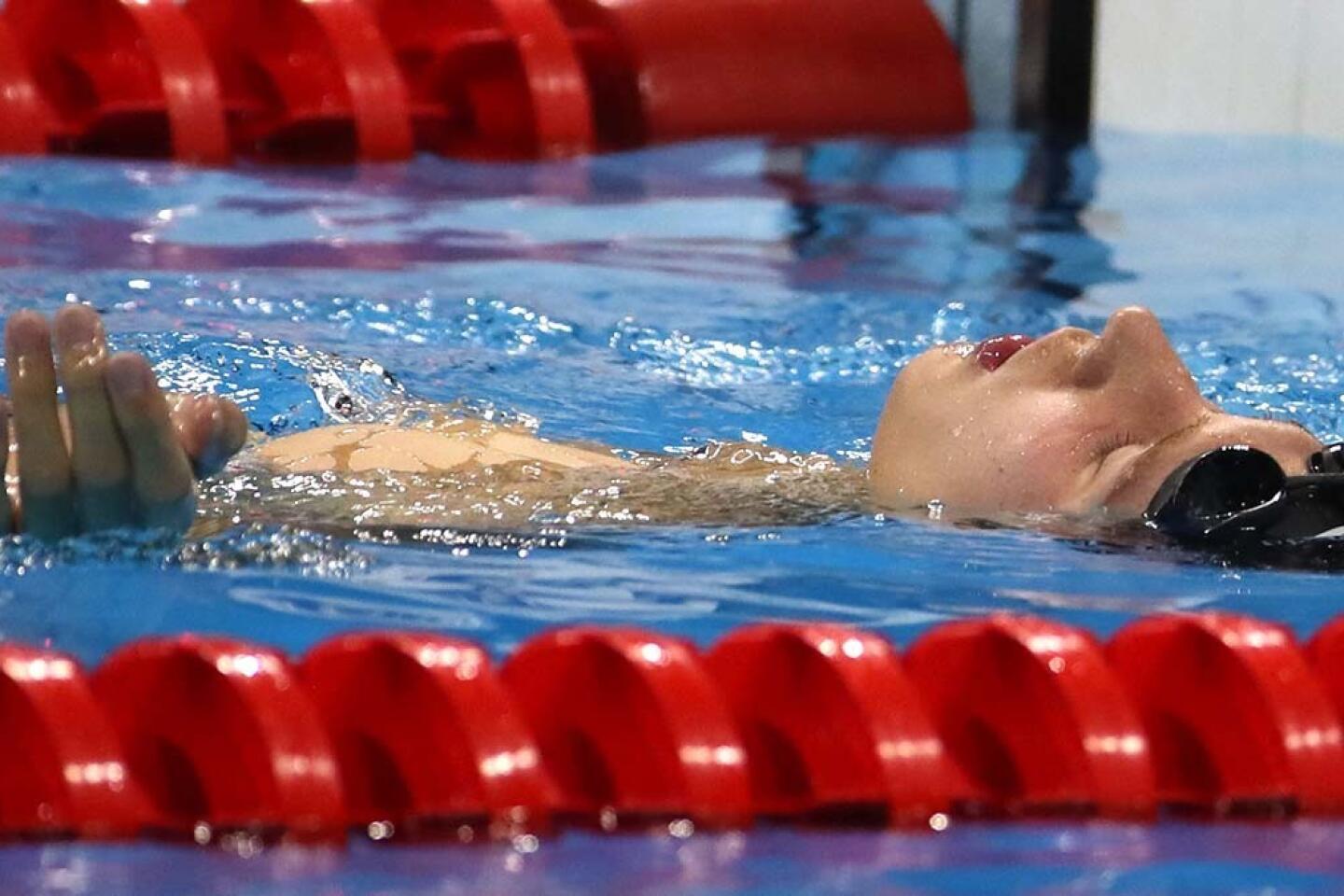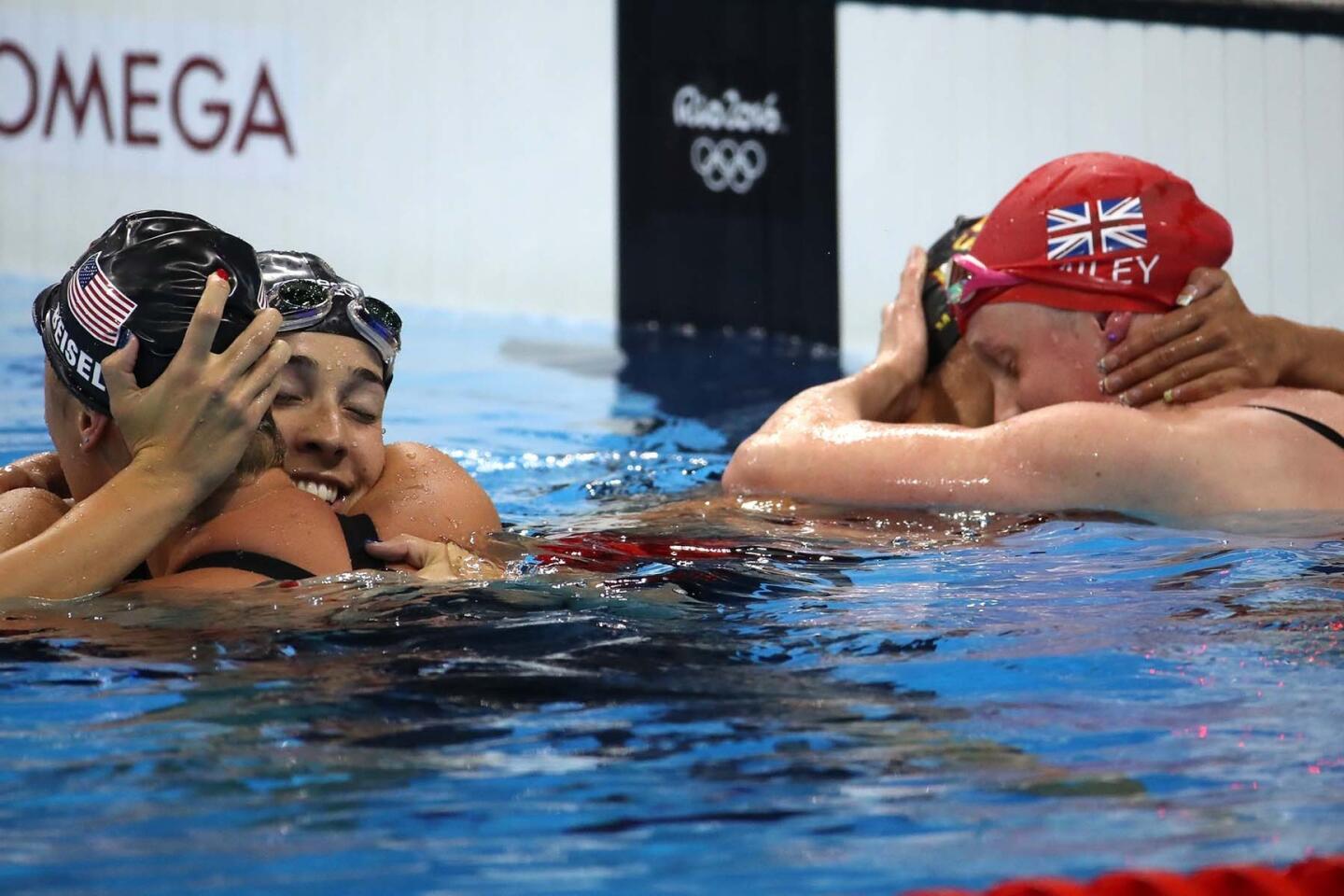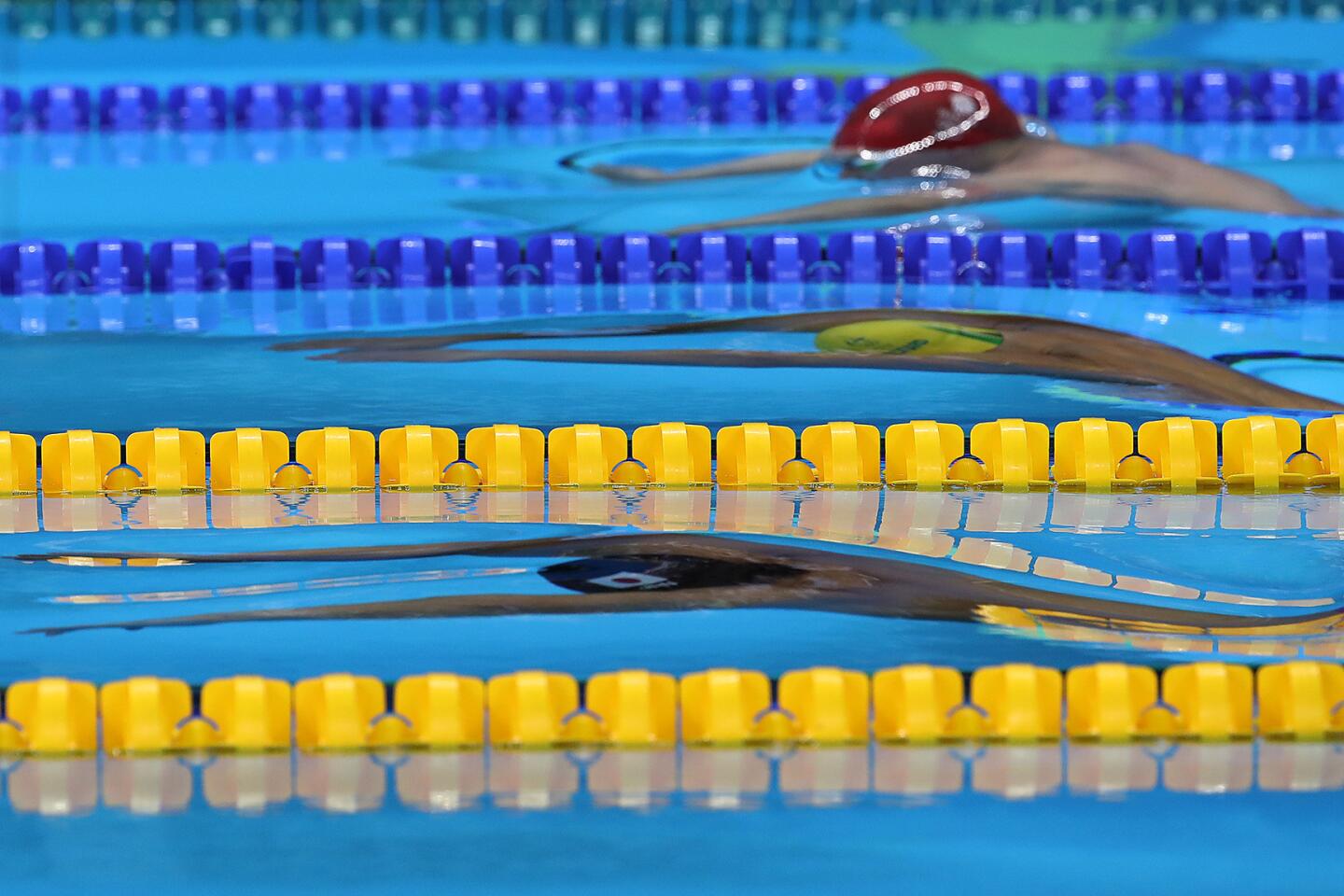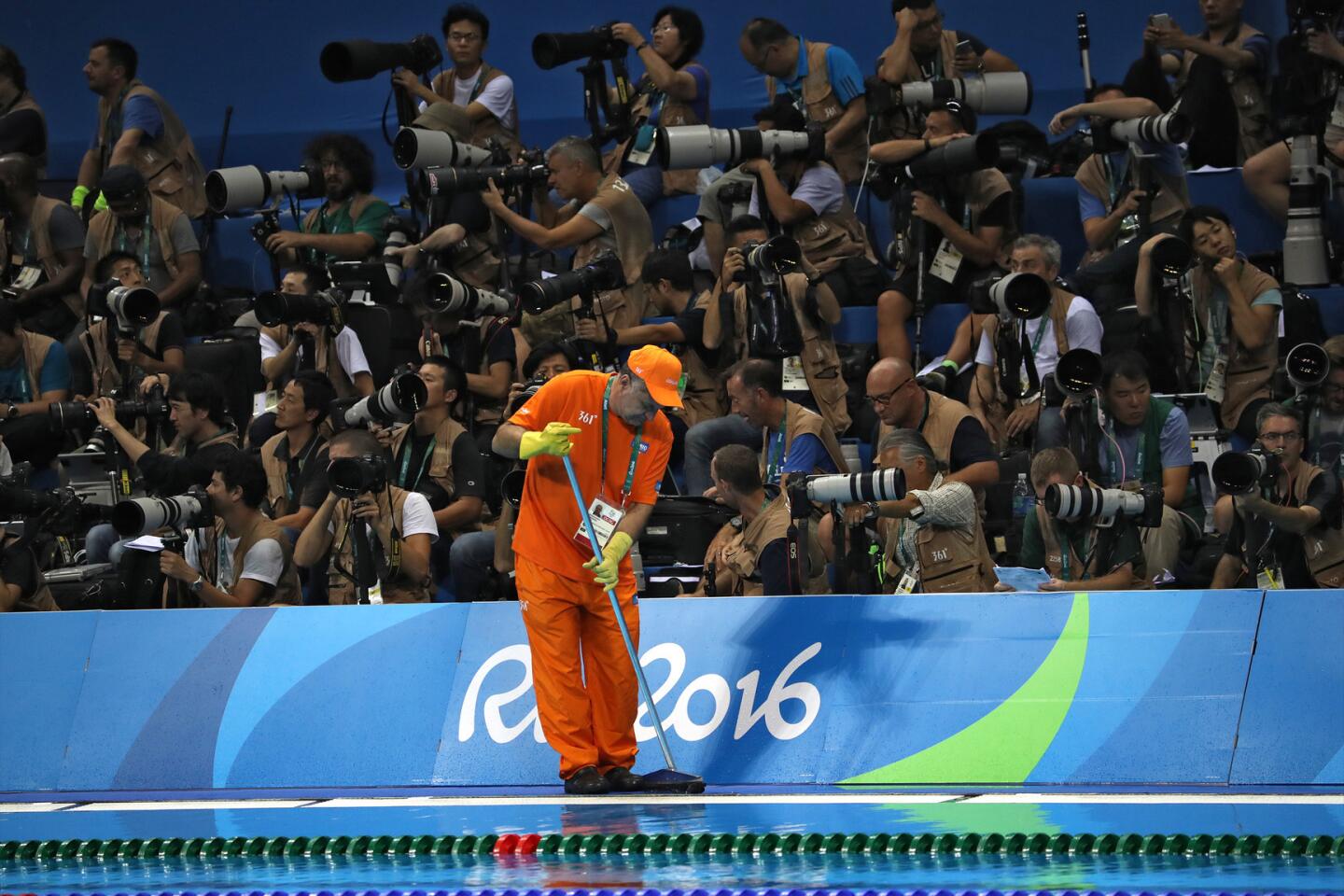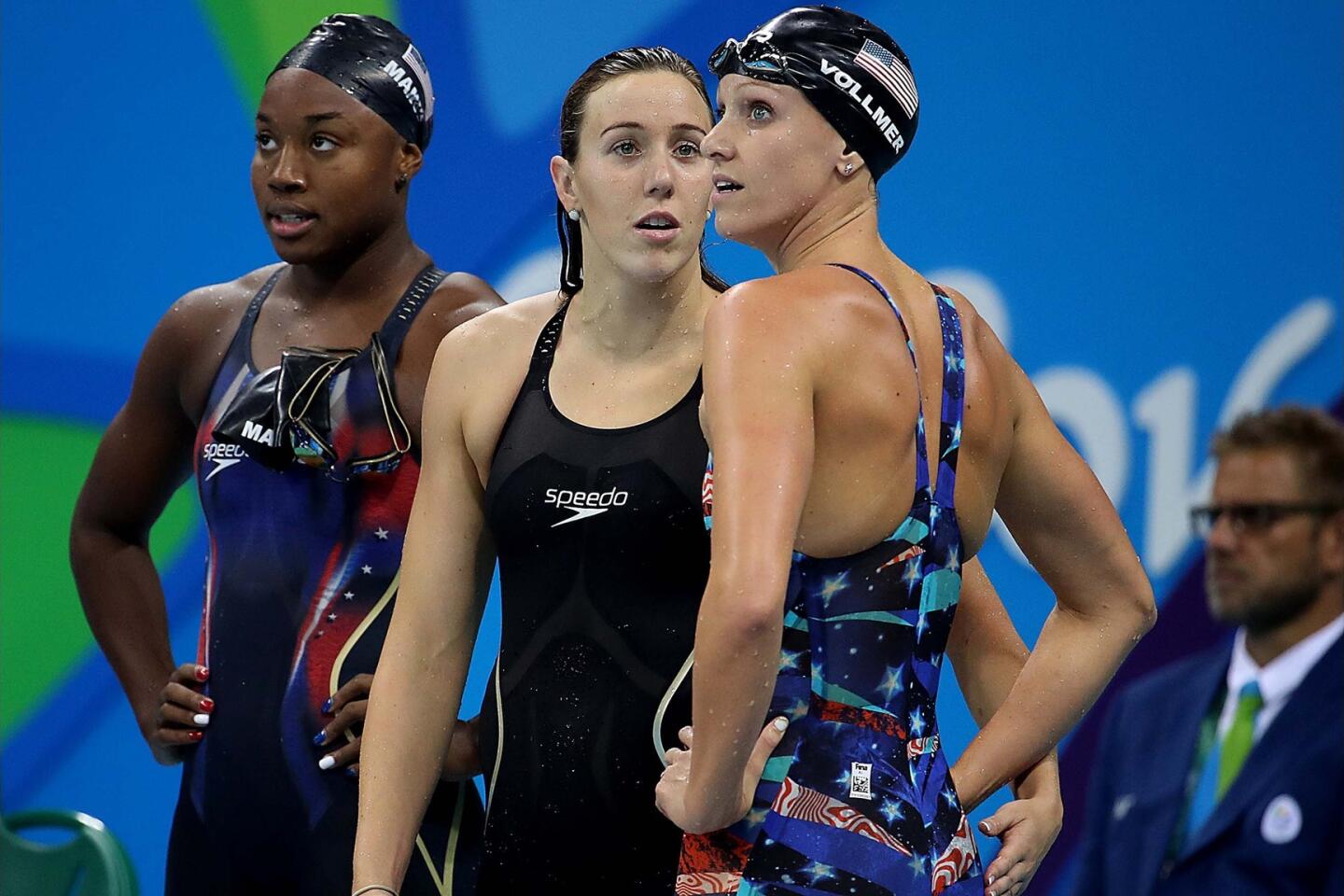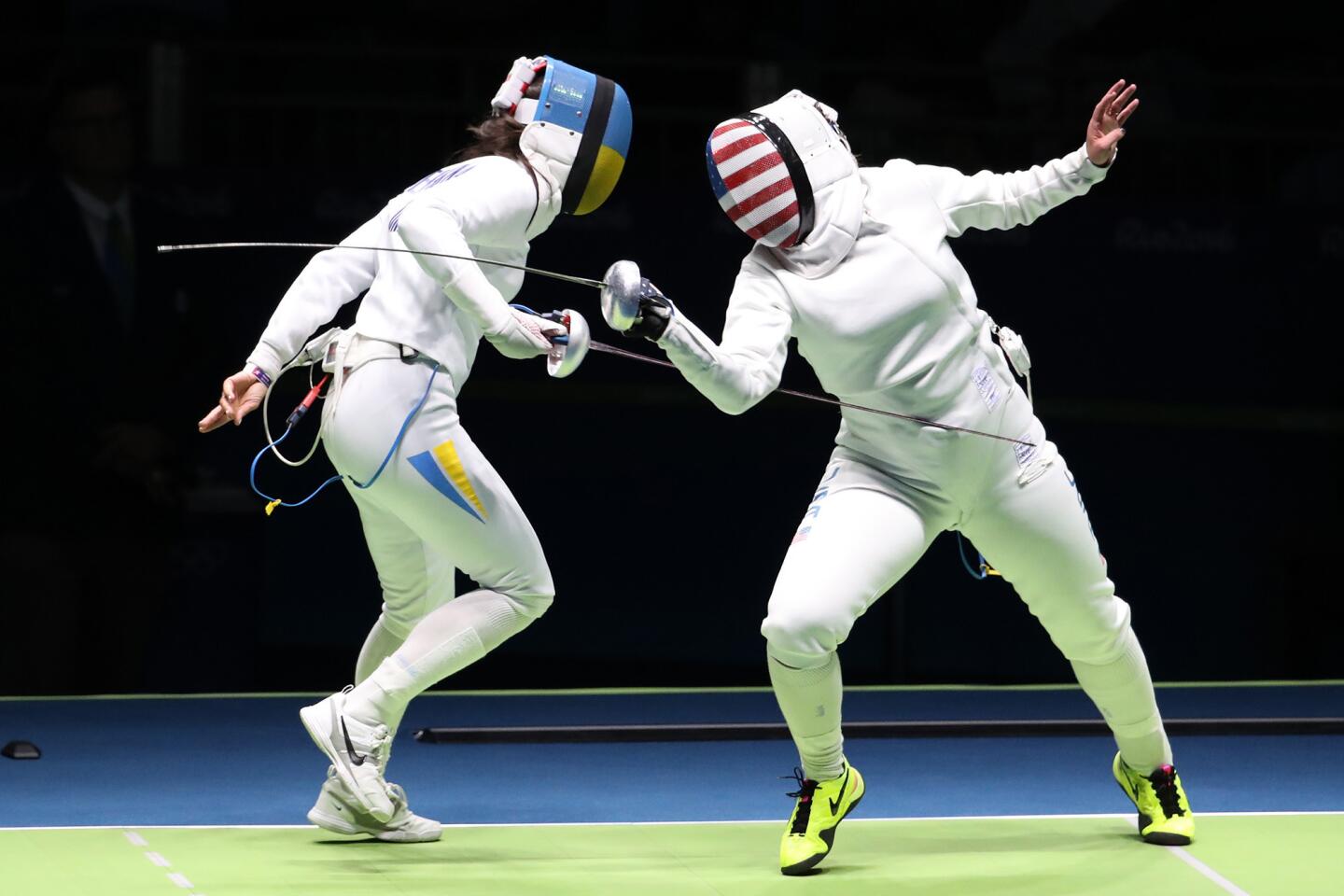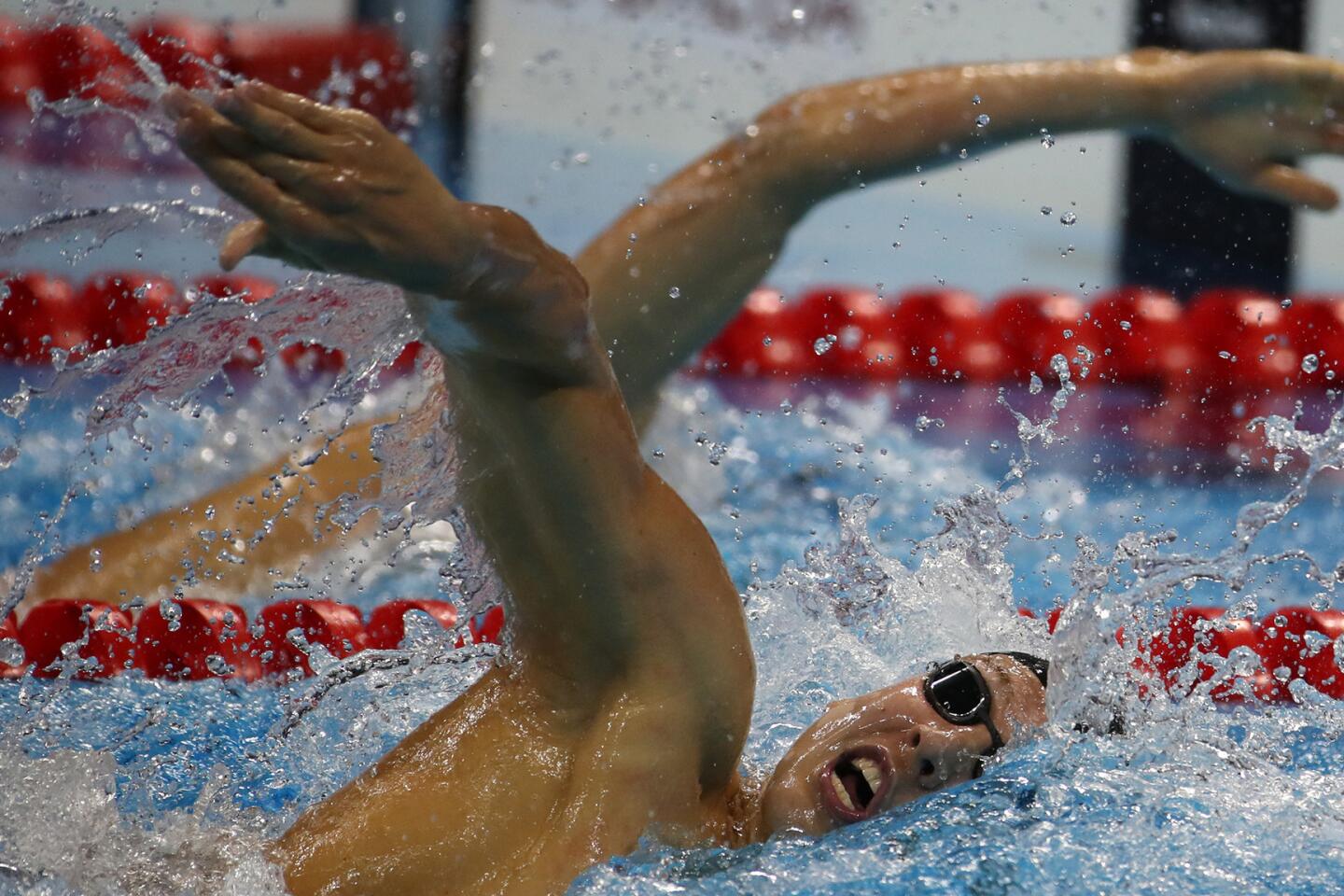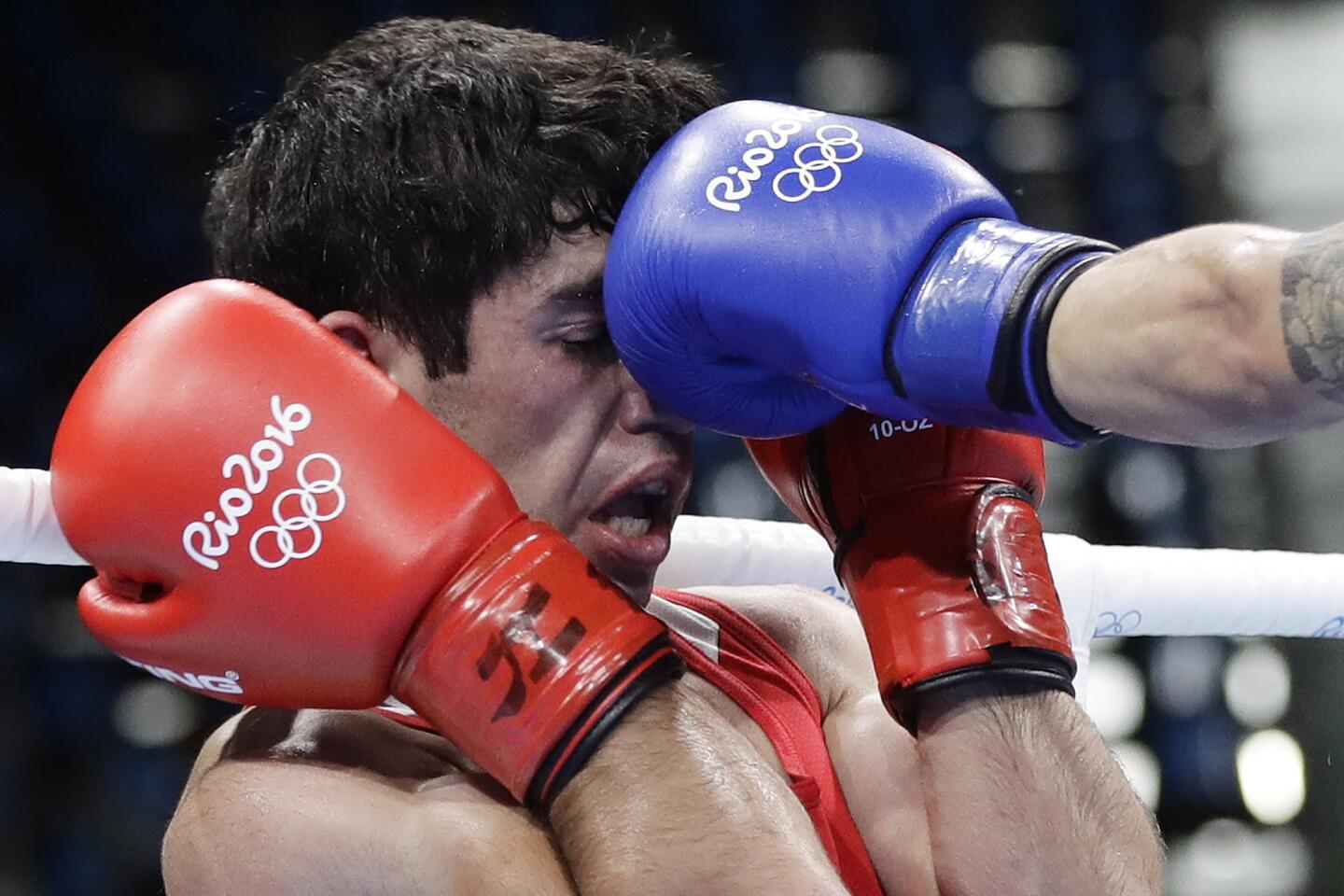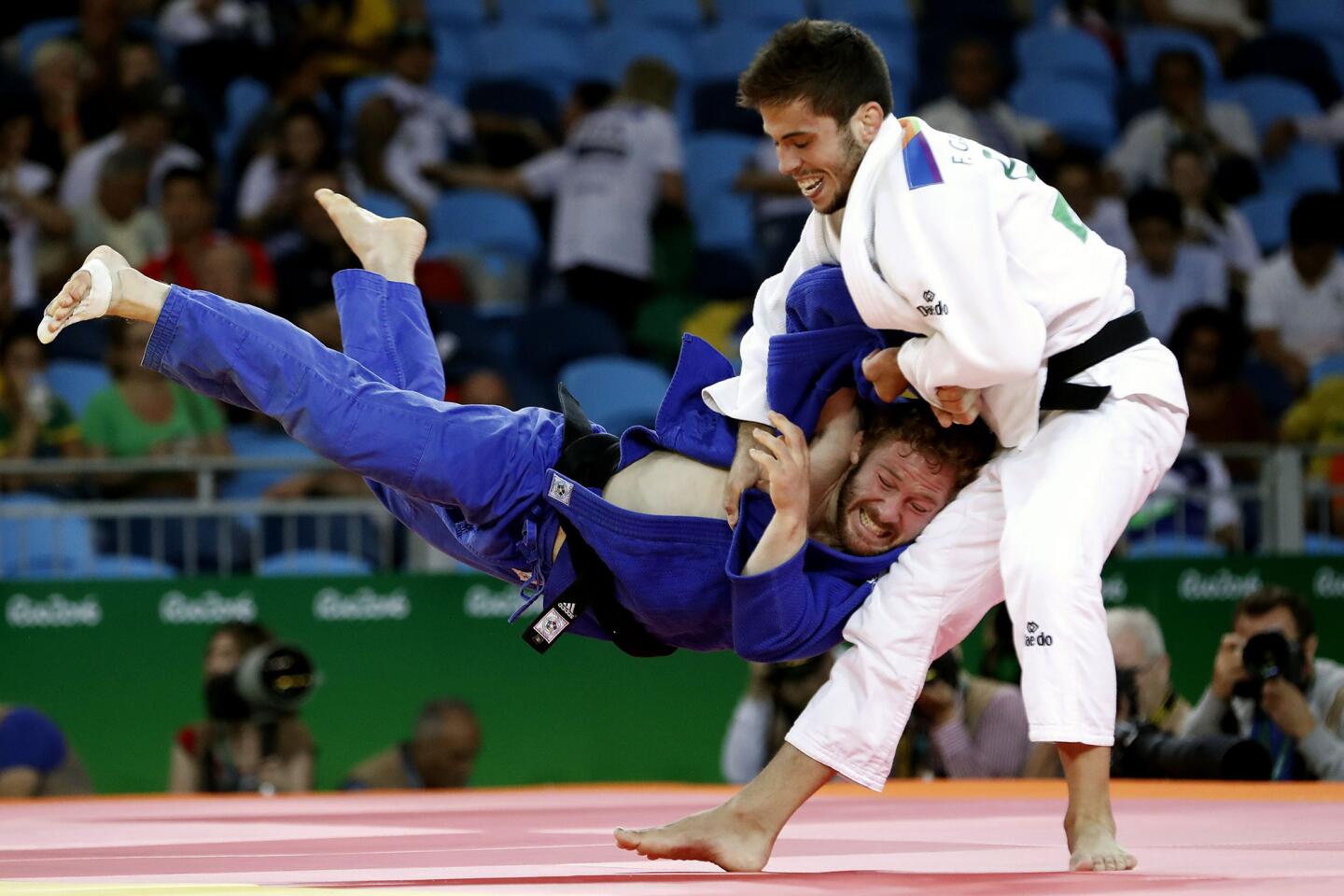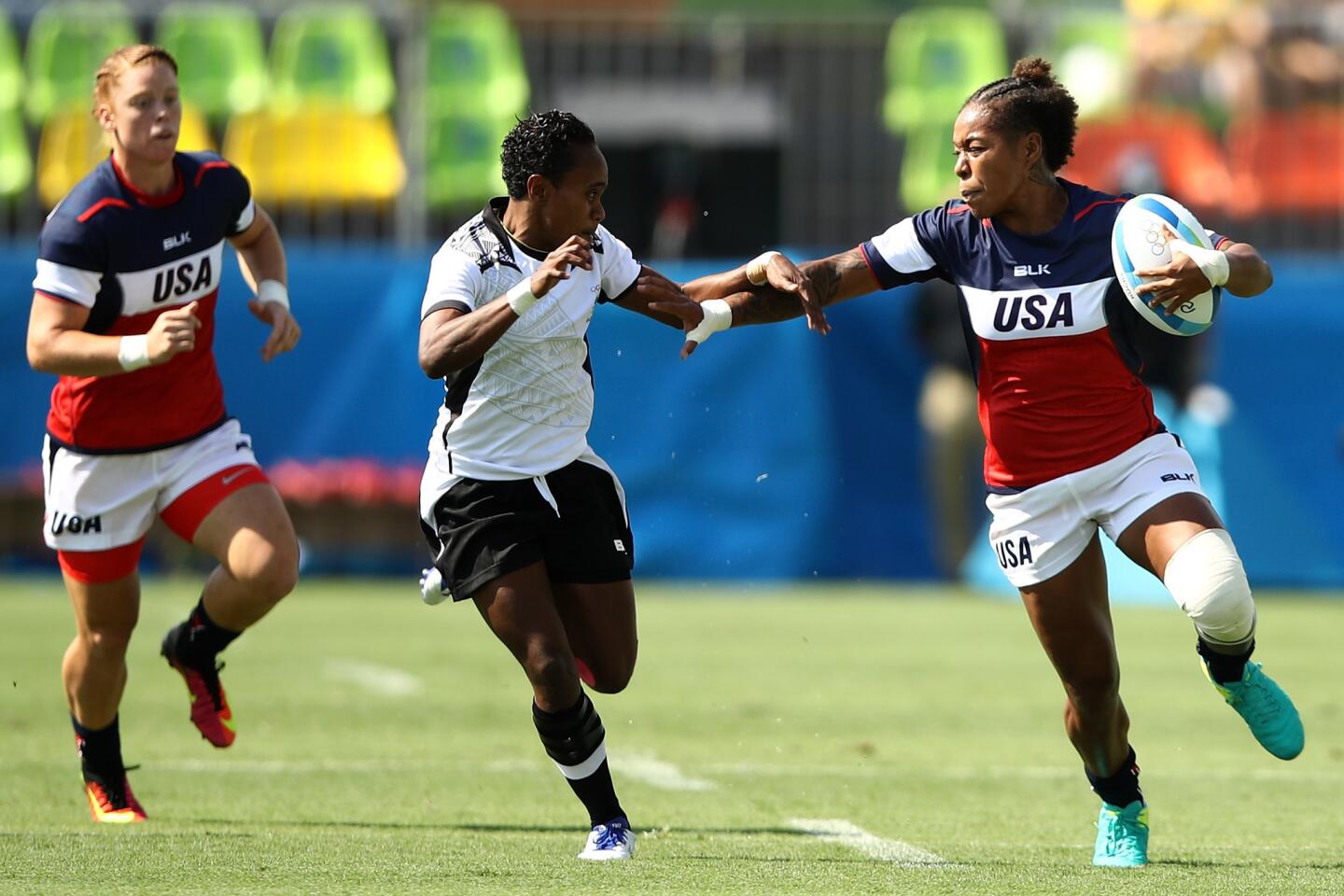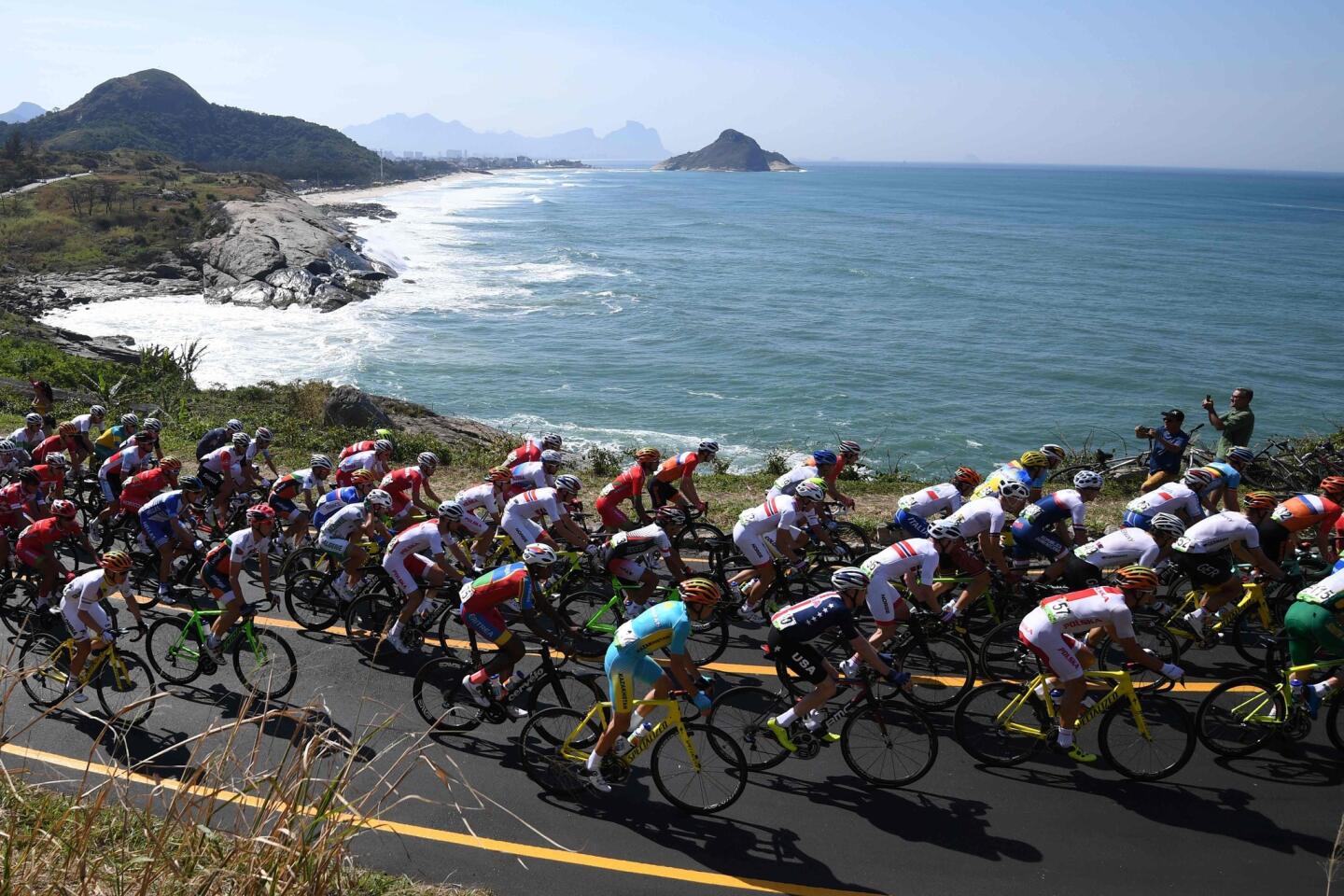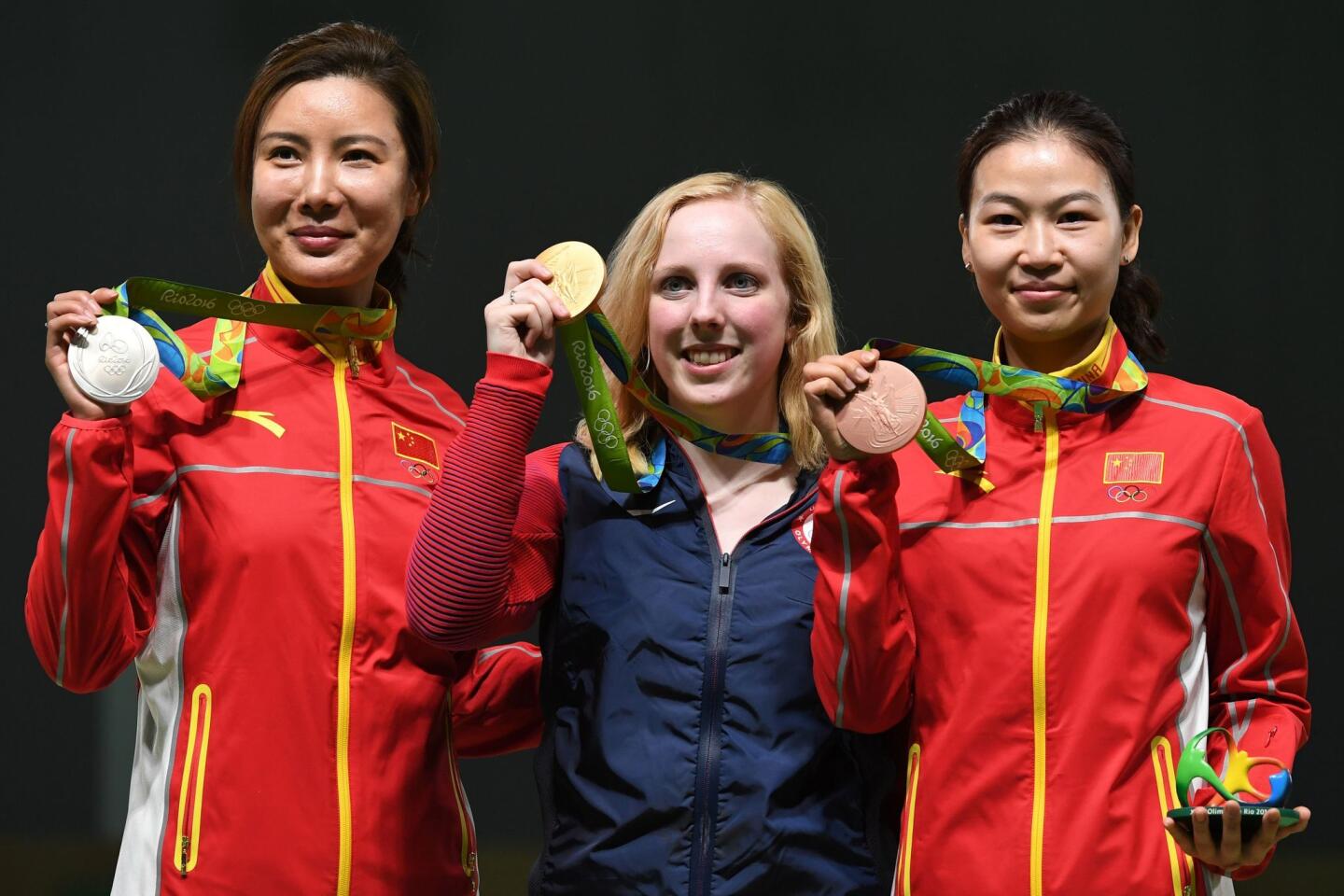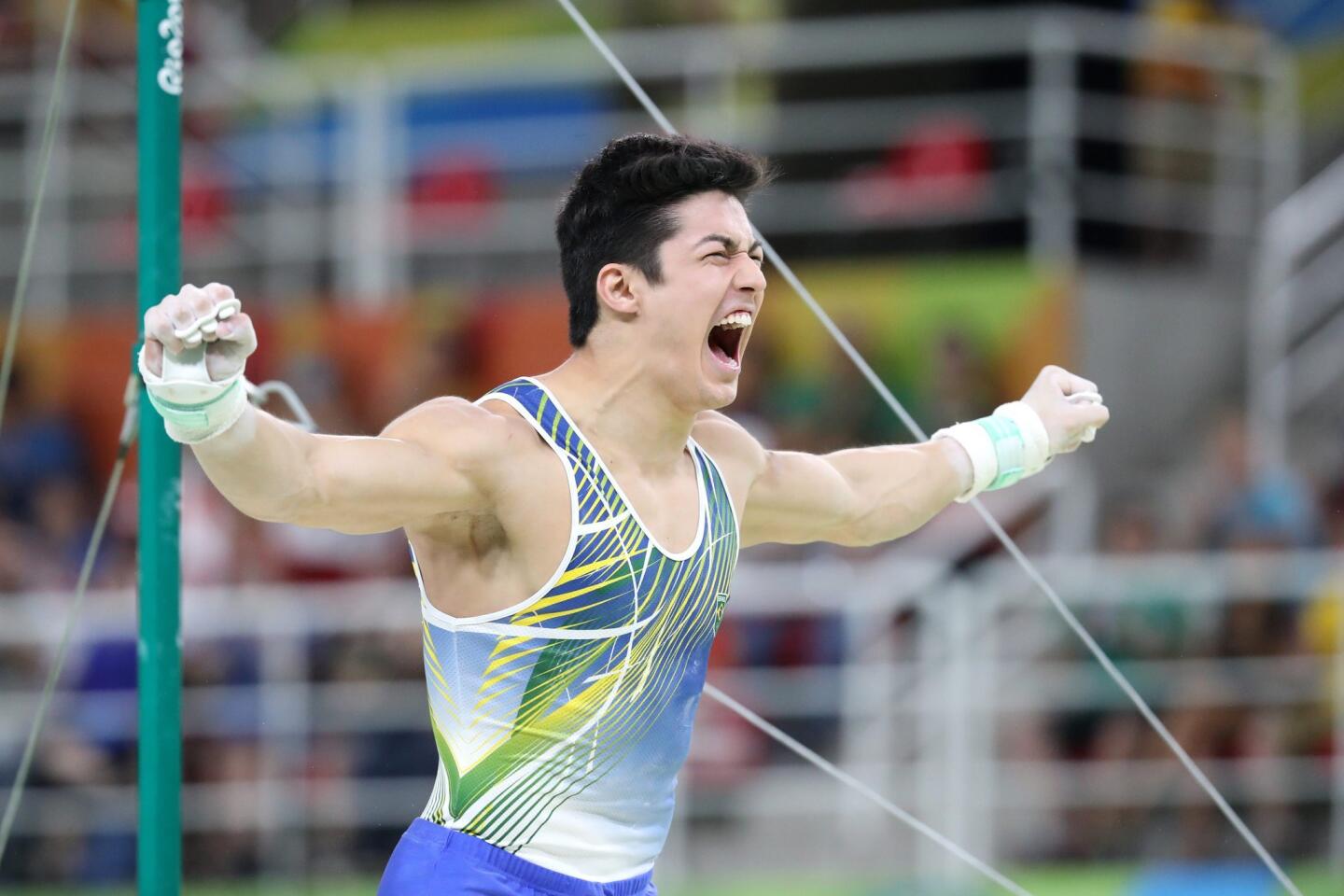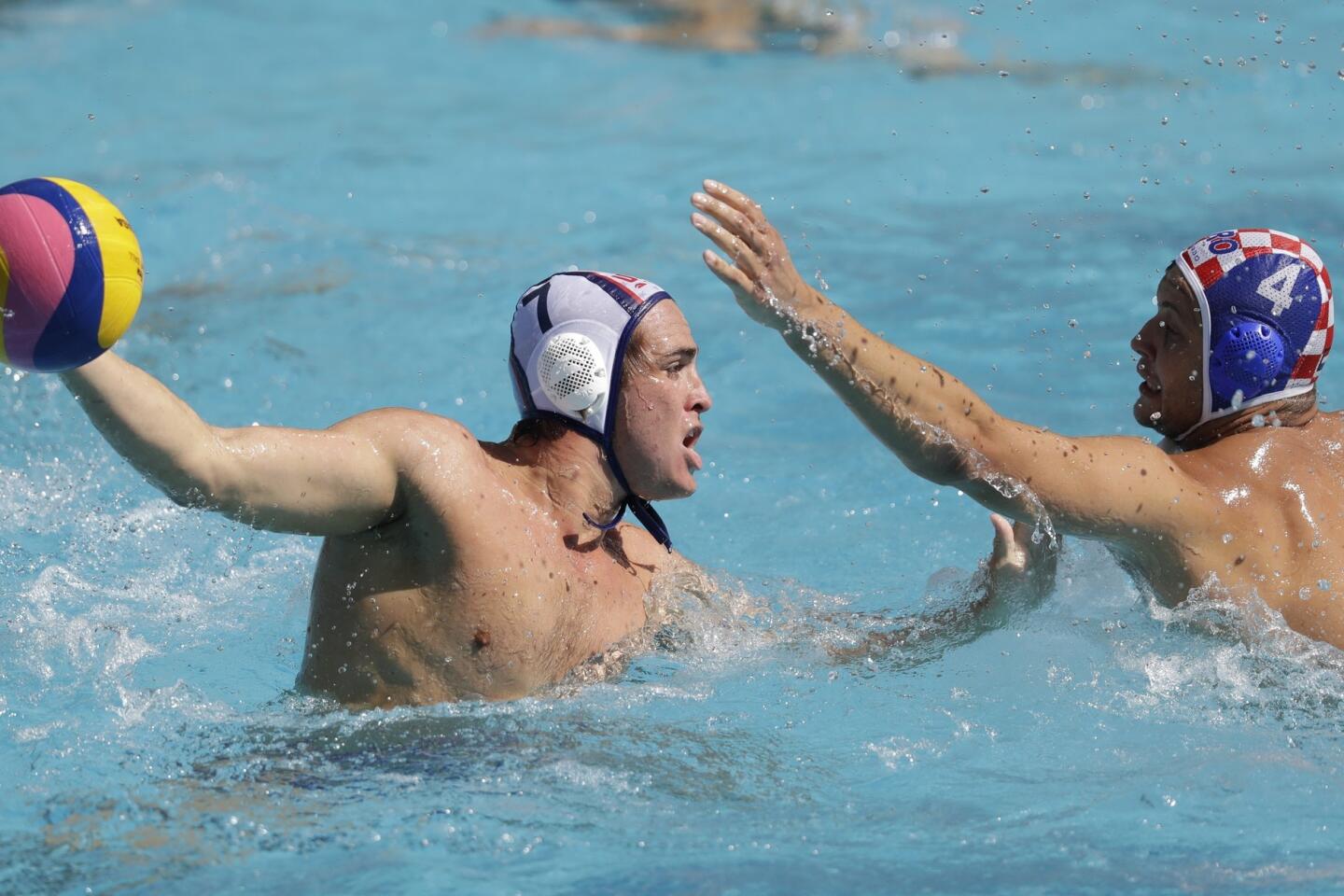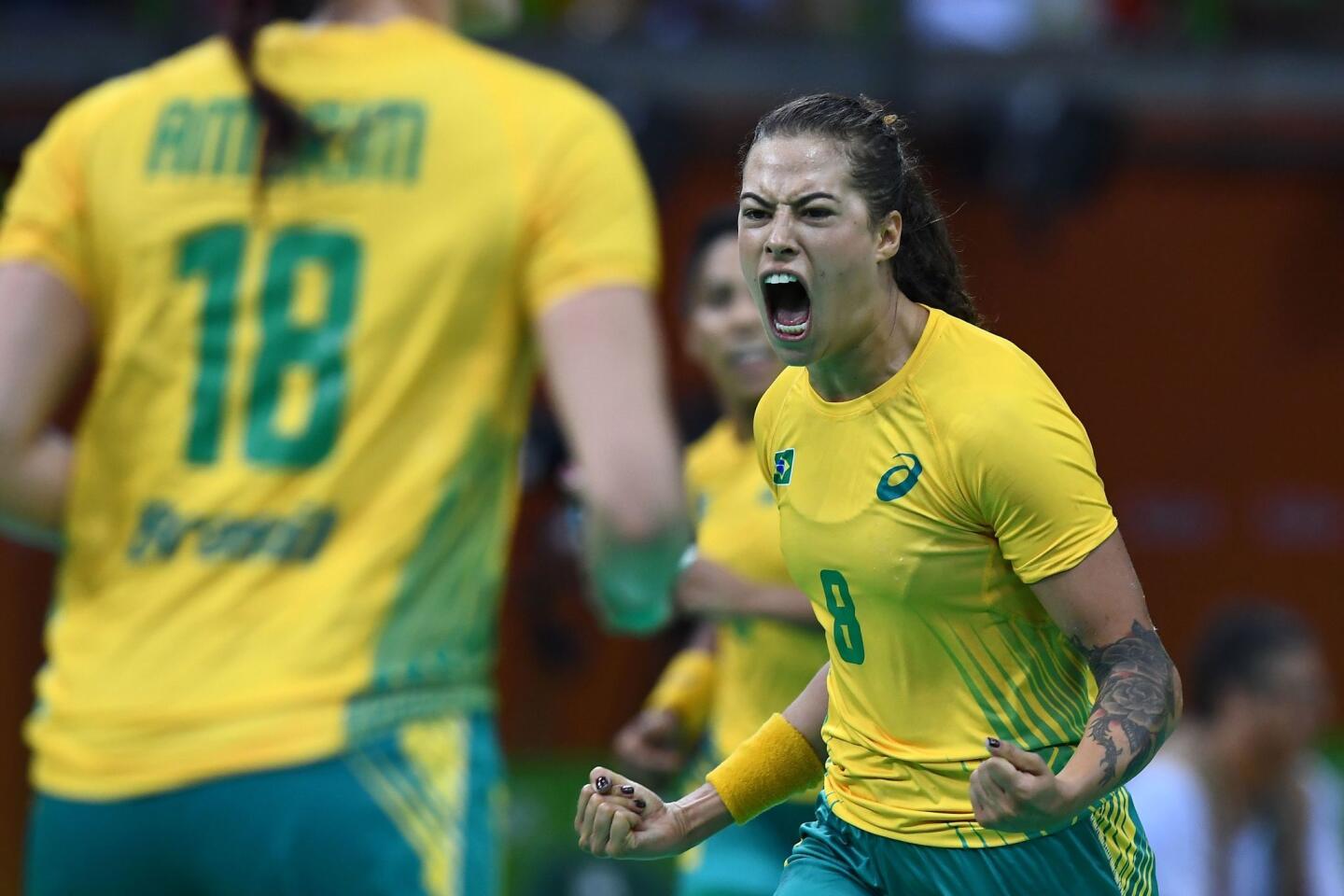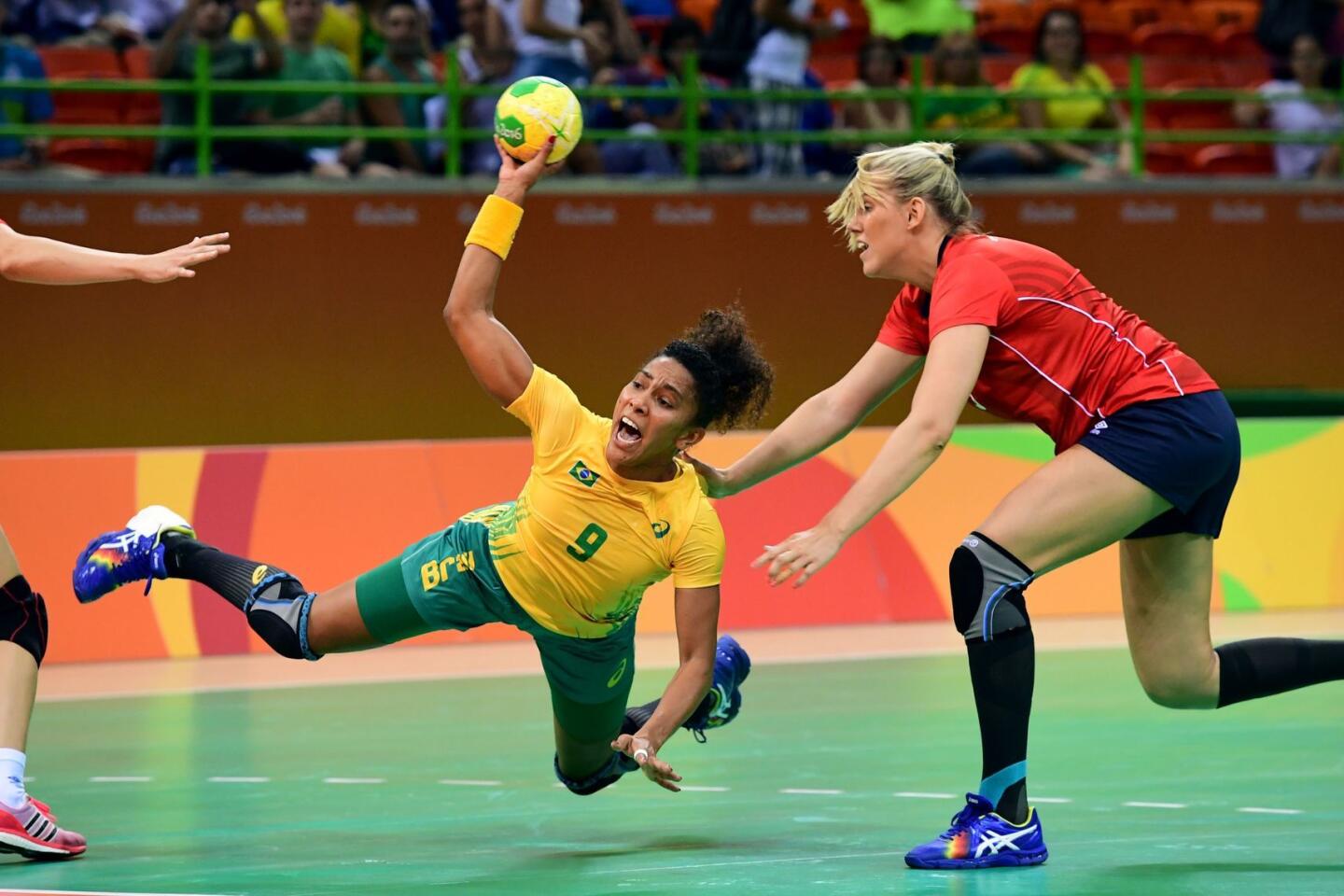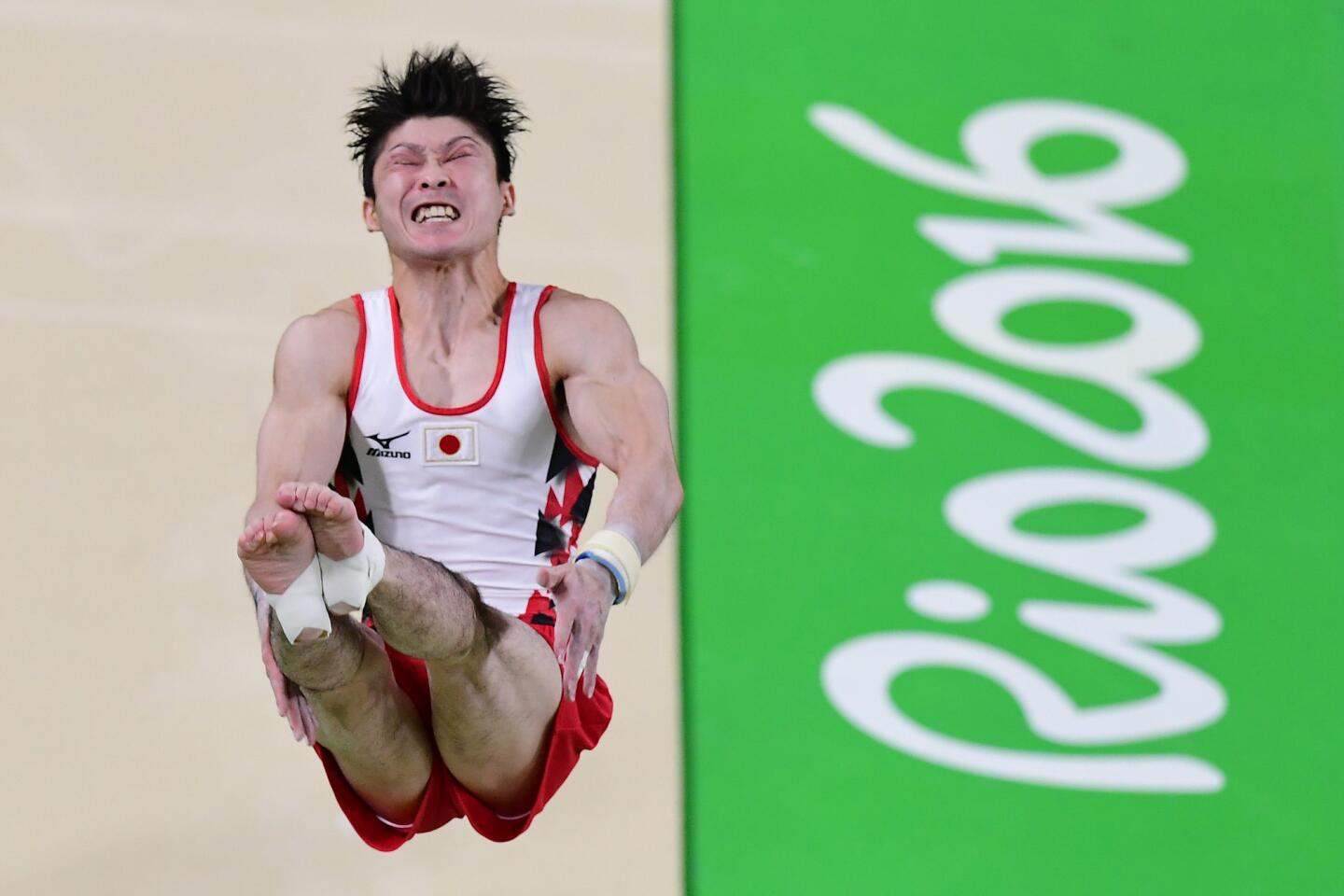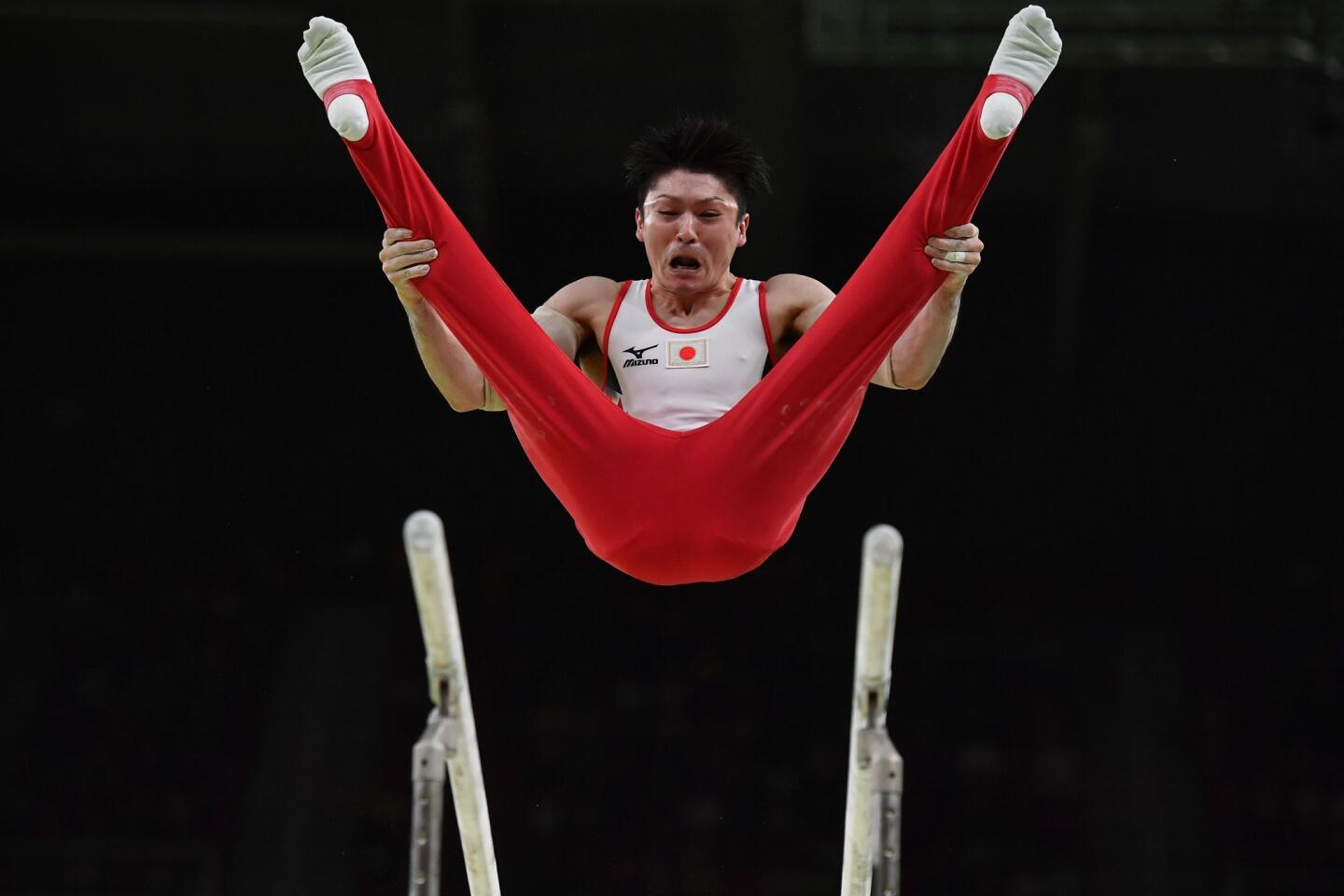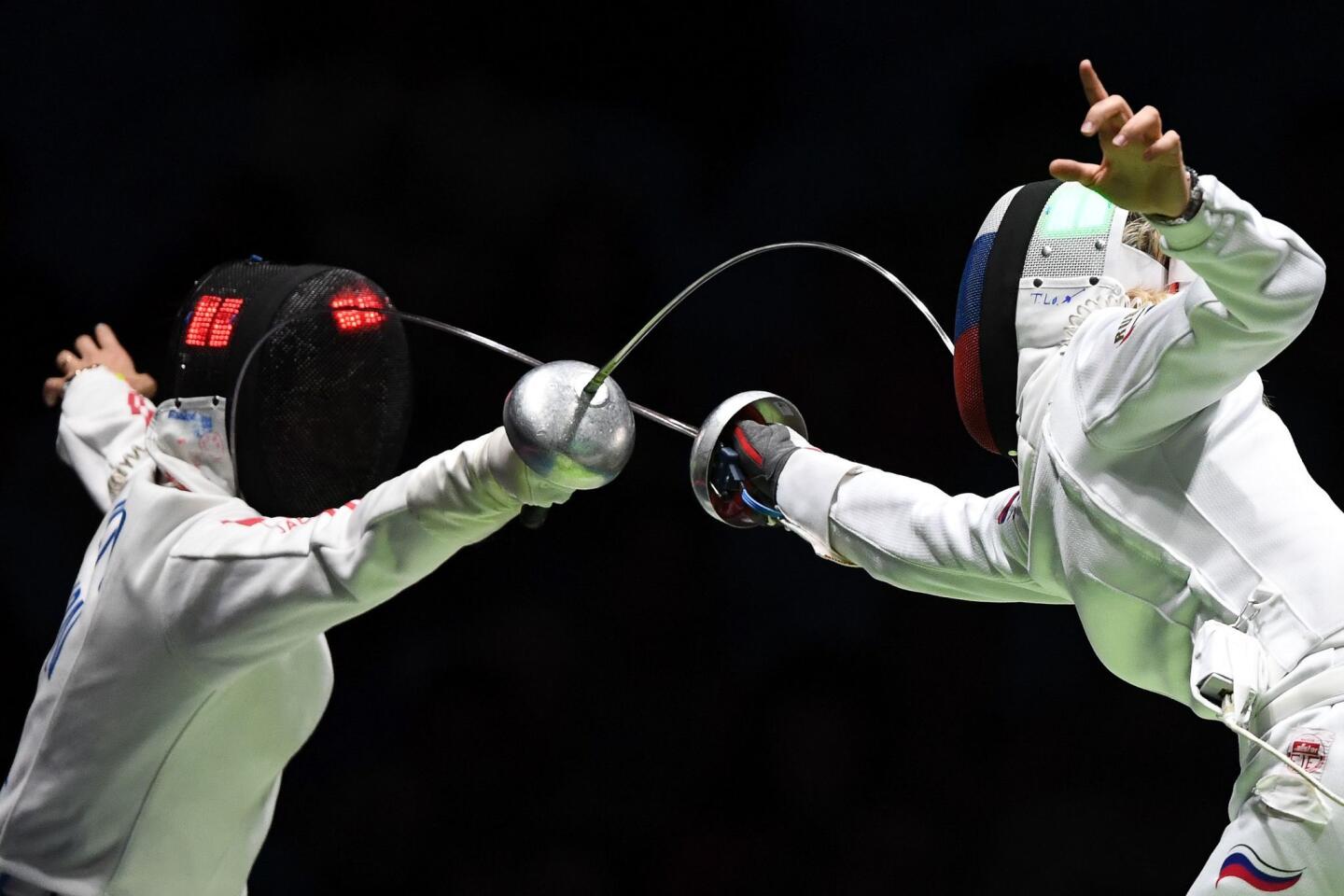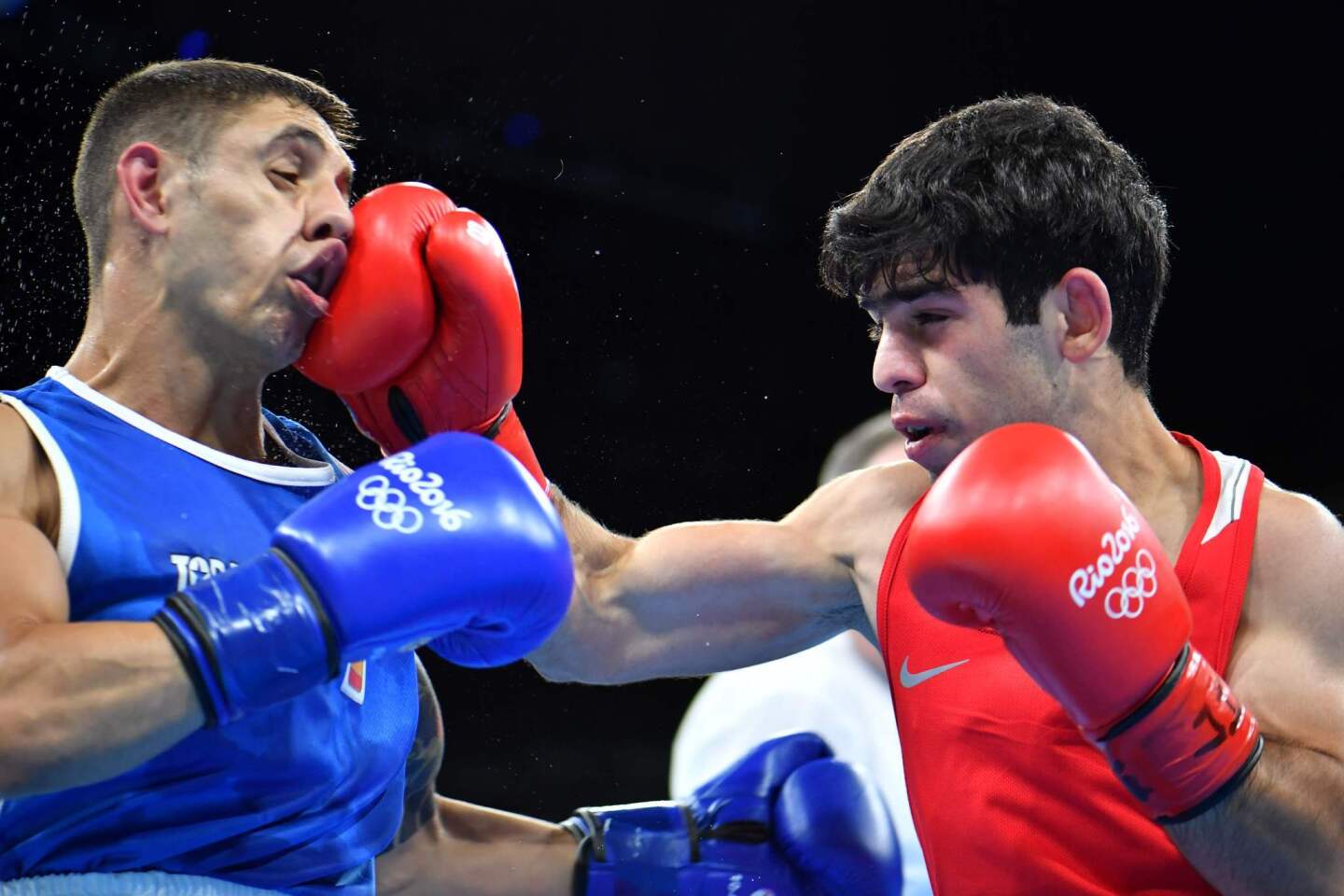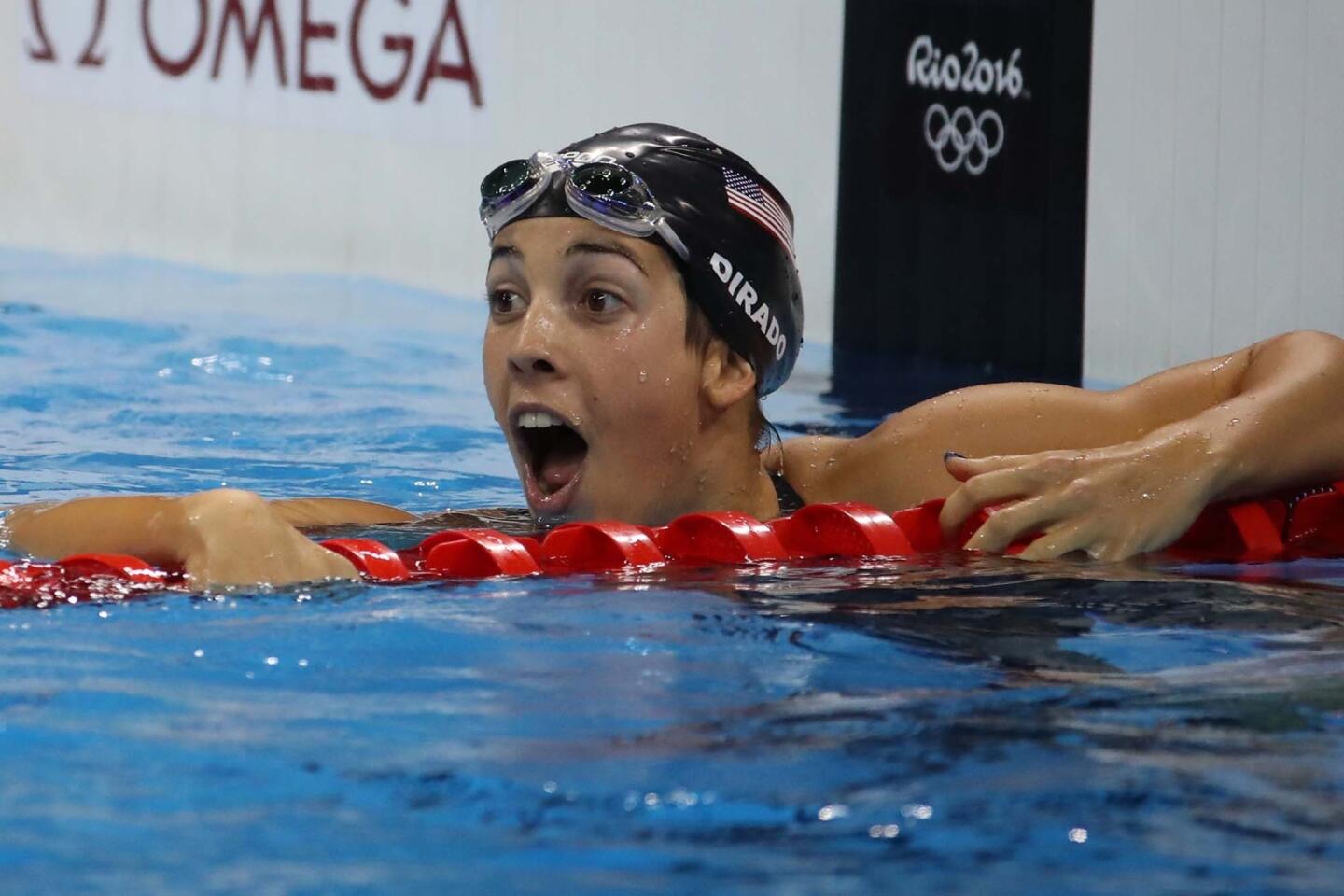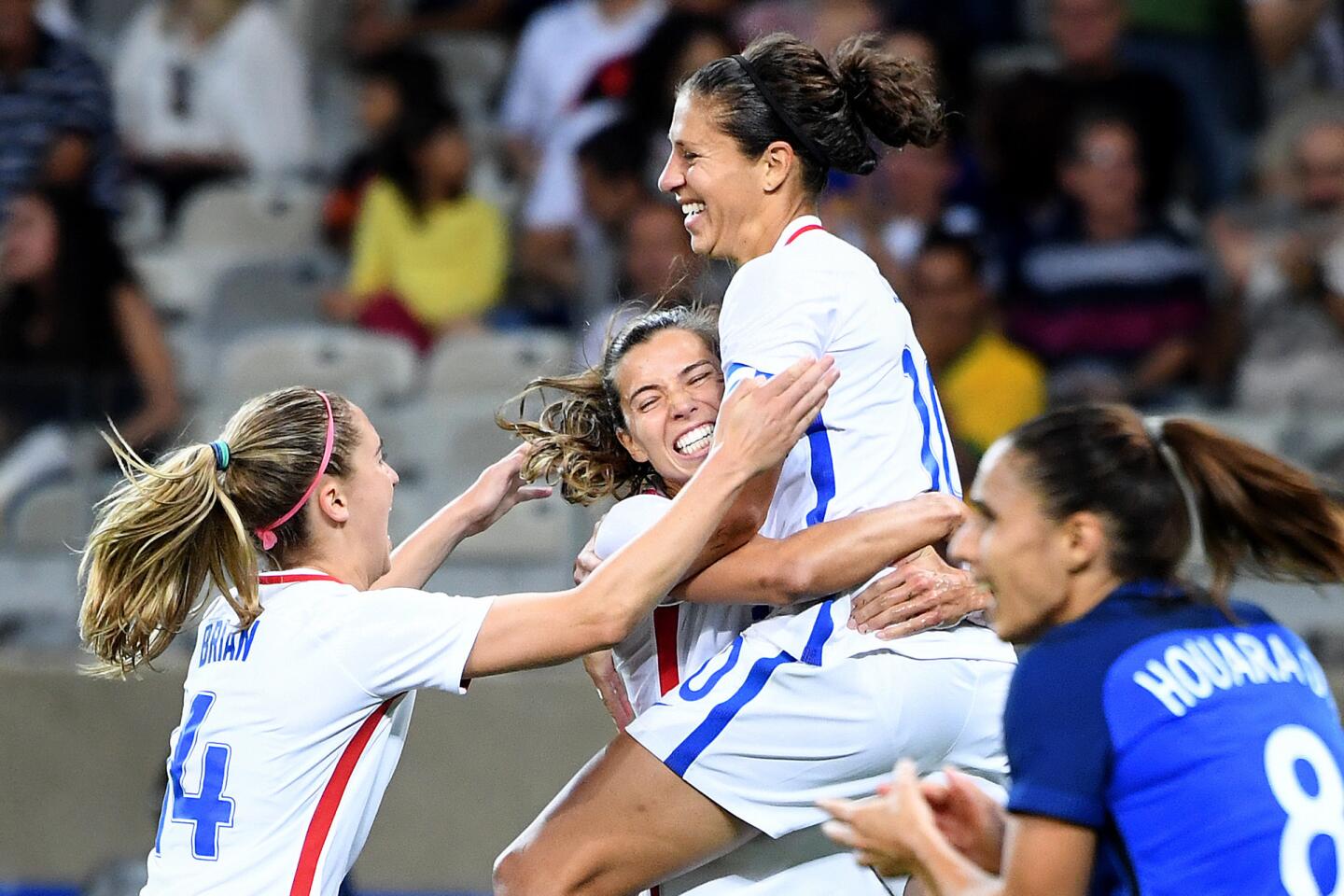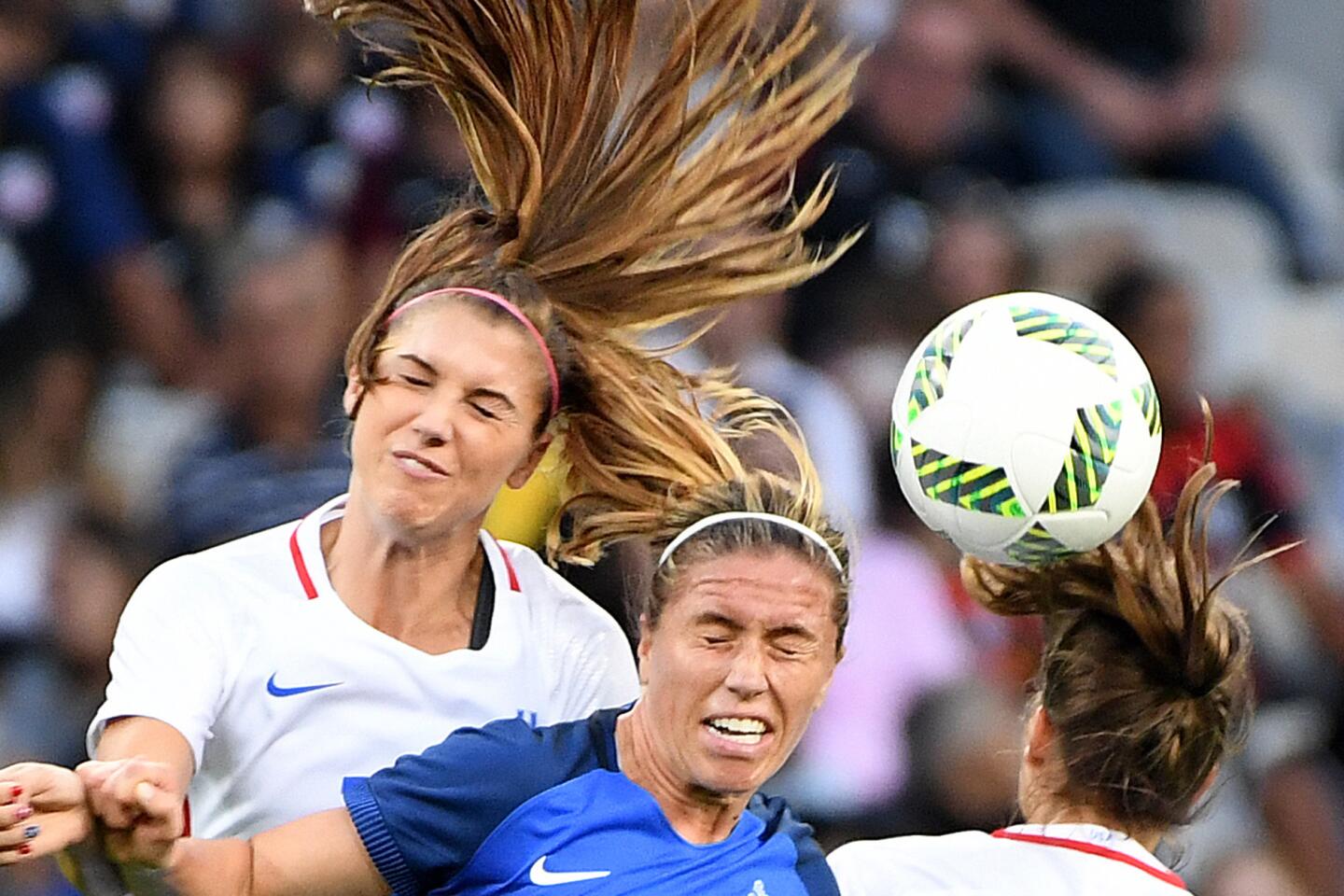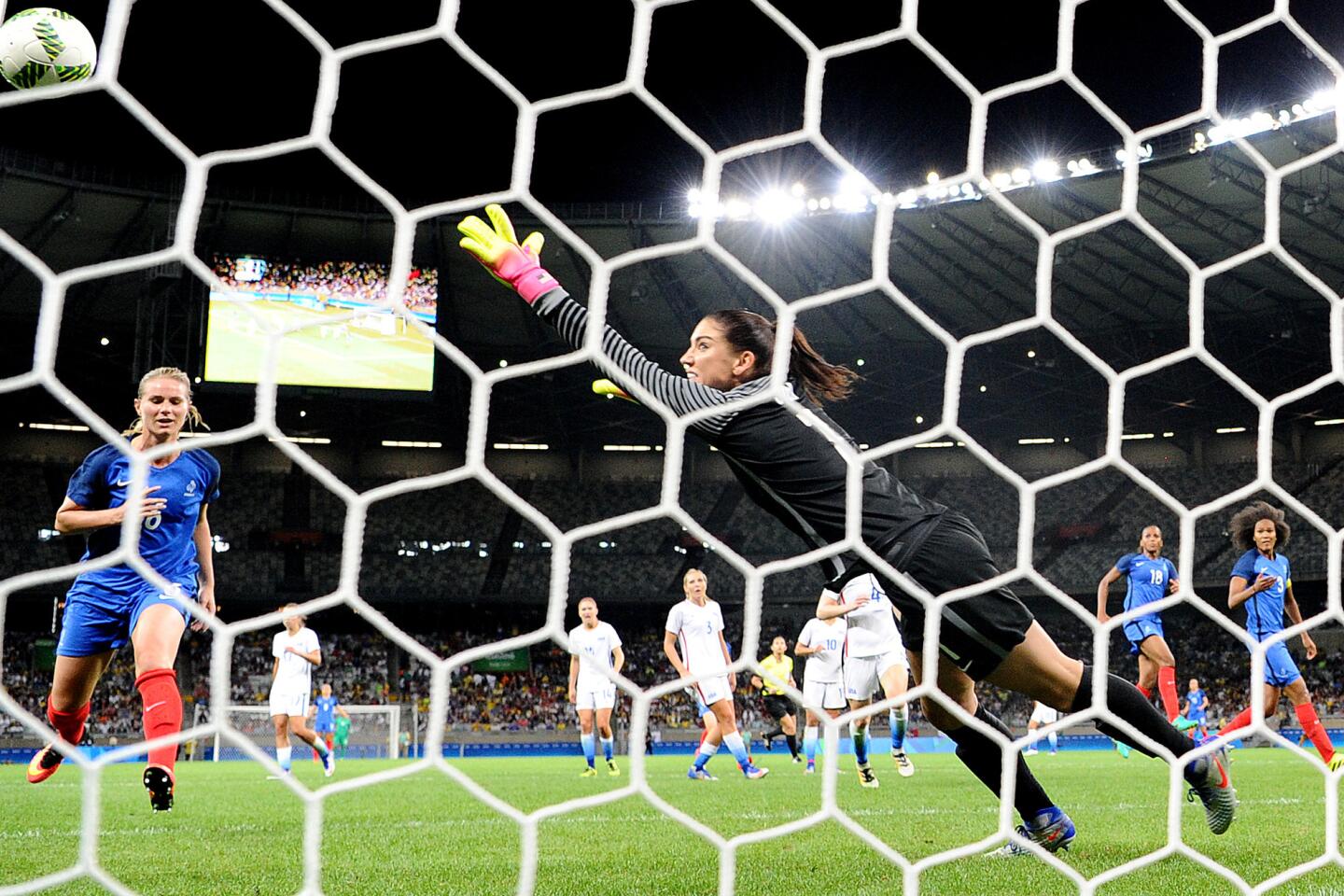Reporting from Rio de Janeiro — Atop a steep mountain overlooking Brazil’s most renowned beaches, a dozen local boys play a game of indoor soccer in the city’s largest favela.
They play without shoes, kicking the ball with a force that would leave bruises on less-weathered feet. They slide and dive, not caring that the concrete pavement is unforgiving to kneecaps and hip bones.
In Rocinha — a sprawling slum that is home to more than 100,000 people — futebol-obsessed children can’t be picky about where they play. They simply don’t have options.
Brazil has spent about $12 billion in public and private money to host South America’s first Olympic Games, building several new athletic facilities. Yet, its poorest communities still struggle to provide even the most basic recreation opportunities for their residents.
Despite Rocinha’s large population, it has just four places to play soccer.
The most popular spot is the Academicos da Rocinha, a converted samba school with an indoor field about the size of an elementary school basketball court. Smelling of urine and sweat, the dusty building is in constant use by both children and adults for organized leagues and pick-up games.
The favela has even fewer outdoor play areas for children, though there are hopes to build the first American-style playground in the coming months.
Until then, Rocinha, like the more than 1,000 other favelas in the Cidade Maravilhosa, must endure with the barest of resources, much as it has for the past century. Its children still will be left to play on rooftops, in narrow streets as cars and motorcycles zip past or in alleys — one of which has an open sewer running through it.
Rio indeed may serve as the world’s grandest playground this summer, but Rocinha’s residents do not expect to see many rewards.
“There will be no benefits for Rocinha,” said Alex Elias, a 34-year-old motorcycle taxi driver who has spent his entire life living and working in the favela. “There’s nothing for the people who live here.”
It’s against this backdrop the International Center for Research and Policy on Childhood has worked to build spaces where the favela’s children can safely gather. CIESPI, as the organization is known here, has led the effort to build the first official playground in the community, which is home to an estimated 17,000 children under age 8.
“Rocinha basically has no outside area for children to play,” says Malcolm Bush, a social scientist from Chicago who serves as a senior advisor at CIESPI. “There are some pick-up ... soccer places, but you can have drug traffickers with AK-47s over their shoulders watching on.”
1/53
RIO DE JANEIRO, BRAZIL, TUESDAY, AUGUST 9 2016. - U.S. boxer Carlos Balderas Jr. is tended to in his corner between rounds against Japan’s Daisuke Narimatsu in a Men’s Light (60kg) prelim at Riocentro Pavilion 6. (Robert Gauthier/Los Angeles Times) (Robert Gauthier / Los Angeles Times)
2/53
RIO DE JANEIRO, BRAZIL, SATURDAY, AUGUST 20, 2016 - Rafael Alcantara jumps into the ecstatic crowd to celebrate a win over Germany in the Men’s Football Gold Medal Match at Maracana. (Robert Gauthier/Los Angeles Times) (Robert Gauthier / Los Angeles Times)
3/53
RIO DE JANEIRO, BRAZIL, SATURDAY, AUGUST 20, 2016 - Fans erupt in joy as Brazil scores a goal in the first half of the Men’s Football Gold Medal Match at Maracana. (Robert Gauthier/Los Angeles Times) (Robert Gauthier / Los Angeles Times)
4/53
RIO DE JANEIRO, BRAZIL, SATURDAY, AUGUST 20, 2016 - U.S. boxer Shakur Stevenson covers his head in disappointment after losing a split decision to Robeisy Ramirez of Cuba in the Men’s Boxing Bantam Weight Final at Riocentro Pavilion 6. (Robert Gauthier/Los Angeles Times) (Robert Gauthier / Los Angeles Times)
5/53
RIO DE JANEIRO, BRAZIL, FRIDAY, AUGUST 19, 2016 - Rhythmic Gymnastics, Men’s Basketball. (Robert Gauthier/Los Angeles Times) (Robert Gauthier / Los Angeles Times)
6/53
RIO DE JANEIRO, BRAZIL, TUESDAY, AUGUST 16, 2016 - Kerri Walsh Jennings, right, and April Ross console each other as Brazil celebrates a 2-0 win over the U.S. in a Women’s Beach Volleyball Semifinal at the Beach Volleyball arena. (Robert Gauthier/Los Angeles Times) (Robert Gauthier / Los Angeles Times)
7/53
RIO DE JANEIRO, BRAZIL, SUNDAY, AUGUST 14, 2016 - Argentina Tennis Player Juan Martin Del Potro shows his frustration as he competes against Andy Murray of Great Britain in the Men’s Singles Tennis Final at the Olympic Tennis Centre. Del Potro lost in four sets to win a Silver Medal. (Robert Gauthier/Los Angeles Times) (Robert Gauthier / Los Angeles Times)
8/53
RIO DE JANEIRO, BRAZIL, SUNDAY, AUGUST 14, 2016 - Gymnast Chunsong Shang of China prepares the equipment before her uneven bars routine at the Rio 2016 Summer Olympic Games, at the Rio Olympic Arena.(Robert Gauthier/Los Angeles Times) (Robert Gauthier / Los Angeles Times)
9/53
RIO DE JANEIRO, BRAZIL, SATURDAY, AUGUST 13 2016. - Women’s fencer Alina Komaschuk of Ukraine, right, competes against Yuliya Gavrilova of Russia. (Robert Gauthier/Los Angeles Times) (Robert Gauthier / Los Angeles Times)
10/53
RIO DE JANEIRO, BRAZIL, SATURDAY, AUGUST 13 2016. Michael Phelps gives an emotion filled wave to the crowd after competing in what possibly was his last Olympic competition, the Men’s 4x 100m Medley Relay at the Olympic Aquatics Stadium. Phelps and his U.S.A. teammates won the Gold Medal. (Robert Gauthier/Los Angeles Times) (Robert Gauthier / Los Angeles Times)
11/53
RIO DE JANEIRO, BRAZIL, SATURDAY, AUGUST 13 2016. - Women’s fencer ALINA KOMASHCHUK of Ukraine celebrates after winning point during a match against Yuliya Gavrilova of Russia. (Robert Gauthier/Los Angeles Times) (Robert Gauthier / Los Angeles Times)
12/53
RIO DE JANEIRO, BRAZIL, SATURDAY, AUGUST 13 2016. - The Italian team competes in the Men’s Team Pursuit race during the track cycling competition at the Rio Olympic Velodrome. (Robert Gauthier/Los Angeles Times) (Robert Gauthier / Los Angeles Times)
13/53
RIO DE JANEIRO, BRAZIL, FRIDAY, AUGUST 12, 2016. - Katie Ledecky pulls away from the pack midway through the Women’s 800m Freestyle at the Olympic Aquatics Stadium. Ledecky earned a Gold Medal with a world record time of 8:04.79. (Robert Gauthier/Los Angeles Times) (Robert Gauthier / Los Angeles Times)
14/53
RIO DE JANEIRO, BRAZIL, FRIDAY, AUGUST 12, 2016. - Swimmers push off to start the Women’s 200m Backstroke at the Olympic Aquatics Stadium. (Robert Gauthier/Los Angeles Times) (Robert Gauthier / Los Angeles Times)
15/53
RIO DE JANEIRO, BRAZIL, FRIDAY, AUGUST 12, 2016. - Swimmer Michael Phelps laughs in the pool after finishing in a three way tie for the Silver Medal in the Men’s 100m Butterfly at the Olympic Aquatics Stadium. (Robert Gauthier/Los Angeles Times) (Robert Gauthier / Los Angeles Times)
16/53
RIO DE JANEIRO, BRAZIL, FRIDAY, AUGUST 12, 2016. - U.S. swimmer Maya Dirado celebrates after edging Katinka Hosszu of Hungary for first place in the Women’s 200m Backstroke at Olympic Aquatics Park. Hosszu led nearly the whole way only to have Dirado close and pass her in the last 10 meters. (Robert Gauthier/Los Angeles Times) (Robert Gauthier / Los Angeles Times)
17/53
RIO DE JANEIRO, BRAZIL, FRIDAY, AUGUST 12, 2016. - USA boxer Carlos Balderas recites a short prayer in the corner of the ring moments before battling Cuba’s Lazara Alvarez in the Men’s lightweight (60kg) Quarterfinals. (Robert Gauthier/Los Angeles Times) (Robert Gauthier / Los Angeles Times)
18/53
RIO DE JANEIRO, BRAZIL, THURSDAY, AUGUST 11, 2016. -Michael Phelps receives his fourth Gold Medal at the Rio 2016 Olympics for winning the Men’s 200m Individual Medley at the Olympic Aquatics Stadium. (Robert Gauthier/Los Angeles Times) (Robert Gauthier / Los Angeles Times)
19/53
RIO DE JANEIRO, BRAZIL, THURSDAY, AUGUST 11, 2016. - U.S.A. swimmer Missy Franklin embraces teammate Maya Dirado after the Women’s 200m Backstroke Semifinal at the Olympic Aquatics Stadium. Franklin did not qualify for the finals. Dirado won the heat and qualified. (Robert Gauthier/Los Angeles Times) (Robert Gauthier / Los Angeles Times)
20/53
RIO DE JANEIRO, BRAZIL, WEDNESDAY, AUGUST 10 2016. - U.S.A. swimmer Missy Franklin swims the second leg of the Women’s 4x200 Freestyle Relay prelim at the Olympic Aquatics Stadium. (Robert Gauthier/Los Angeles Times) (Robert Gauthier / Los Angeles Times)
21/53
RIO DE JANEIRO, BRAZIL, WEDNESDAY, AUGUST 10 2016. - Swimmer Michael Phelps takes a moment to reflect moments after winning a qualifying heat in the Men’s 200m Individual Medley at the Olympic Aquatics Stadium. (Robert Gauthier/Los Angeles Times) (Robert Gauthier / Los Angeles Times)
22/53
RIO DE JANEIRO, BRAZIL, WEDNESDAY, AUGUST 10 2016. - Italian fencer Elisa de Francisca, left, battles Yongshi Liu of China in the Women’s Foil Individual preliminaries at the Carioca Arena 3. (Robert Gauthier/Los Angeles Times) (Robert Gauthier / Los Angeles Times)
23/53
RIO DE JANEIRO, BRAZIL, MONDAY, AUGUST 8, 2016. - Michael Phelps competes in the Men’s 200m Butterfly semifinal at the Olympic Aquatic Stadium. (Robert Gauthier/Los Angeles Times) (Robert Gauthier / Los Angeles Times)
24/53
RIO DE JANEIRO, BRAZIL, SUNDAY, AUGUST 7, 2016. USA swimmer Ryan Held, second from left, breaks down in tears as he stands with teammates Nathan Adrian, left, Michael Phelps and Caleb Dressel as the National Anthem plays during the Gold Medal Ceremony for the Men’s 4x100 Freestyle Relay at the Olympic Aquatic Stadium. (Robert Gauthier/Los Angeles Times) (Robert Gauthier / Los Angeles Times)
25/53
RIO DE JANEIRO, BRAZIL, SUNDAY, AUGUST 7, 2016. Serena Williams of the U.S.A. competes against Australia’s Daria Gavrilova in the opening round of the Women’s Singles at the Olympic Tennis Center. (Robert Gauthier/Los Angeles Times) (Robert Gauthier / Los Angeles Times)
26/53
RIO DE JANEIRO, BRAZIL, SUNDAY, AUGUST 14, 2016 - U.S. Gymnast Alexander Naddour exhults as he finishes a Medal worthy performance in the Men’s Pommel Horse at Rio Olympic Arena. Naddour’s score of 15.700 landed him in third place. (Robert Gauthier/Los Angeles Times) (Robert Gauthier / Los Angeles Times)
27/53
Chase Kalisz pushes toward the finish line to win a qualifying heat of the Men’s 400m Individual Medley at the Olympic Aquatics Center. His time of 4:08.12, qualified him for the finals.
(Robert Gauthier / Los Angeles Times) 28/53
A disappointed Chase Kalisz soaks in the reality that he finished second in the Men’s 400m Individual Medley.
(Robert Gauthier / Los Angeles Times) 29/53
USA swimmers Elizabeth Beisel, left, and Maya Dirado share a warm embrace after the Women’s 400m Individual Medley. Next to them are Hannah Miley of Great Britain, right, and Mireia Belmonte Garcia of Spain. Belmonte finished third and Dirado second to Katinka Hosszu of Hungary with a world record time of 4:26:36 at the Olympic Aquatics Stadium.
(Robert Gauthier / Los Angeles Times) 30/53
Swimmers distorted by refracting light, begin to surface at the start of the Men’s 100m Breastroke semifinal.
(Robert Gauthier / Los Angeles Times) 31/53
A packed photo platform waits for swimmers as last minute cleanup is peformed at the Olympic Aquatics Stadium.
(Robert Gauthier / Los Angeles Times) 32/53
Simone Manuel, Abbey Weitzel and Dana Vollmer (L-R) of the USA’s Women’s 4X100 Freestyle Relay team looks on in disappointment after finishing second to Australia.
(Robert Gauthier / Los Angeles Times) 33/53
Brittany Elmslie, Bronte Campbell and Emma McKeon (L-R) of Team Australia celebrate a gold medal performance in the Women’s 4x100 Freestyle Relay.
(Robert Gauthier / Los Angeles Times) 34/53
Yana Shemyakina of the Ukraine, left, and USA fencer Courtney Hurley compete in an early round match at Carioca Arena 3. Shemyakina beat Hurley in overtime.
(Robert Gauthier / Los Angeles Times) 35/53
U.S. swimmer Chase Kalisz finishes second to Japan’s Kosuke Hagino, left, in the 400-meter individual medley. (Robert Gauthier / Los Angeles Times )
36/53
Armenia’s Artur Hovhannisyan receives a punch from Spain’s Samuel Carmona Heredia during a men’s light flyweight 49-kg preliminary boxing match at the 2016 Summer Olympics in Rio de Janeiro on Saturday.
(Frank Franklin II / AP) 37/53
Spain’s Francisco Garrigos, right, competes with Germany’s Tobias Englmaier during their men’s -60kg judo contest match of the Rio 2016 Olympic Games on Saturday.
(JACK GUEZ / AFP/Getty Images) 38/53
Bui Baravilala of the U.S. runs with the ball while Timaima Ravisa of Fiji tries to tackle during the Women’s Pool A rugby match between the U.S. and Fiji on Day 1 of the 2016 Olympic Games at Deodoro Stadium in Rio de Janeiro.
(Mark Kolbe / Getty Images) 39/53
The peloton rides during the Men’s Road cycling race in the 2016 Olympic Games in Rio de Janeiro on Saturday.
(Eric Feferberg / AFP/Getty Images) 40/53
USA’s gold medallist Virginia Thrasher, center, poses on the podium with China’s silver medal winner Du Li, left, and China’s bronze medallist, Yi Siling, during the medal ceremony for the women’s 10-meter air rifle shooting event Saturday at the 2016 Olympic Games at the Olympic Shooting Centre in Rio de Janeiro.
(Pascal Guyot / AFP/Getty Images) 41/53
Arthur Mariano of Brazil reacts after performing on the horizontal bar during the men’s qualification for the 2016 Olympic Games artistic gymnastics eventsSaturday at the Rio Olympic Arena in Barra da Tijuca in Rio de Janeiro.
(Tatyana Zenkovich / EPA) 42/53
USA’s Joshua Samuels, left, takes a shot as Croatia’s Luka Loncar defends during their men’s water polo preliminary round match Saturday at the 2016 Summer Olympics in Rio de Janeiro.
(Sergei Grits / Associated Press) 43/53
Brazil’s left wing Fernanda Franca da Silva celebrates a goal during the women’s preliminaries Group A handball match Norway vs Brazil for the Rio 2016 Olympics Games at the Future Arena in Rio on August 6, 2016. / AFP PHOTO / FRANCK FIFEFRANCK FIFE/AFP/Getty Images ** OUTS - ELSENT, FPG, CM - OUTS * NM, PH, VA if sourced by CT, LA or MoD **
(Franck Fife / AFP/Getty Images) 44/53
Brazil’s center back Ana Paula Belo, center, shoots during the women’s preliminaries Group A handball match Norway vs. Brazil on Saturday for the 2016 Olympics Games at the Future Arena in Rio de Janeiro.
(Franck Fife / AFP/Getty Images) 45/53
Japan’s Kohei Uchimura competes in the qualifying for the men’s vault event of the artistic gymnastics at the Olympic Arena on Saturday during the 2016 Olympic Games in Rio de Janeiro.
(Emmanuel Dunand / AFP/Getty Images) 46/53
Japan’s Kohei Uchimura competes in the qualifying for the men’s parallel bars event of the artistic gymnastics Saturday at the Olympic Arena during the 2016 Olympic Games in Rio de Janeiro.
(Ben Stansall / AFP/Getty Images) 47/53
Japan’s Nozomi Sato, left, competes against Russia’s Tatiana Logunova during their women’s individual epee qualifying bout Saturday as part of the fencing event of the 2016 Olympic Games at the Carioca Arena 3 in Rio de Janeiro.
(Kirill Kudryavtsev / AFP/Getty Images) 48/53
Armenia’s Artur Hovhannisyan, right, lands a punch on Spain’s Samuel Carmona Heredia during a men’s light flyweight match on Aug. 6 at the Olympic Games in Rio de Janeiro. (Yuri Cortez / AFP/Getty Images)
49/53
Sergio Sasaki of Brazil reacts after competing in the artistic gymnastics men’s team qualification on Saturday during the 2016 Olympic Games at Rio Olympic Arena in Rio de Janeiro.
(Alex Livesey / Getty Images) 50/53
Maya Dirado celebrates after finishing second in the Women’s 400m Indivdual Medley.
(Robert Gauthier / Los Angeles Times) 51/53
USA’s Carli Lloyd jumps into the arms of teamate Tobin Heath after scoring a goal against France in the 2nd half at Belo Horizonte in the 2016 Rio Olympics Saturday.
(Wally Skalij / Los Angeles Times) 52/53
USA’s Alex Morgan, left, and Tobin Heath battle for the ball with France’s Camille Abily in the 1st half in Belo Horizonte at the 2016 Rio Olympics Saturday.
(Wally Skalij / Los Angeles Times) 53/53
USA’s Hope Solo makes a save on a shot by France in the 2nd half at Belo Horizonte at the 2016 Rio Olympics Saturday.
(Wally Skalij / Los Angeles Times) With a combined population of about 1.5 million people, Rio’s sprawling slums began appearing in the late 19th century after slavery was abolished and darker-skinned Brazilians migrated to cities in search of work. Ex-slaves and soldiers settled in Rio’s hillsides, where they built low-level, high-density shanty towns that received little or no government oversight.
Favelas grew throughout the 20th century, blanketing Rio’s mountains to the point that it now can be difficult to tell where one begins and another ends. Caught in a violent power struggle between drug traffickers and police, the communities, like much of the city, have struggled with crime and allegations of police brutality amid Brazil’s economic and political turmoil.
The informal growth of these sprawling communities meant there was no government oversight to ensure open spaces in their development. If given the choice between creating a park or building a house, residents naturally chose to shelter their families.
Still, parents have long lamented the lack of recreation space throughout the city’s expansive favela network, experts say. Without places to play, the children are left to hang out in the streets where they can more easily fall under the influence of local gangs.
“A lot of parents see the lack of recreational opportunities as a major threat to the safety of their children,” said Benjamin Penglase, an anthropology professor at Loyola University in Chicago, who studied Rio’s favelas for nearly 25 years.
The Olympics – even with the $7.5 billion the government has spent on so-called legacy project such as an overhauled transportation system – will do little to reduce that threat in Rocinha.
The national Olympic committee has donated some sports equipment and uniforms to the favela’s local multisports center, residents say. And a few Brazilian Olympians made an appearance in the favela to stoke excitement about the competition.
The Brazilian government contends all residents will benefit from the new Olympic venues, though many of the new facilities were built in Rio’s tonier neighborhoods. For example, the golf course, which will become public after the competition with the hope of promoting the sport here, is located in Barra da Tijuca, a beachfront neighborhood that’s home to some of the city’s wealthiest citizens.
But Madureira Park in the city’s north zone and the slalom whitewater course in the disadvantaged Deodoro neighborhood could prove the exceptions. Organizers made improvements to the park, located in one of the city’s poorer areas, in an effort to benefit all residents. And in Deodoro, residents began swimming in the slalom venue last November, prompting organizers to incorporate a public pool there once the Games are over. It will become part of an X-Park, which will also include BMX and mountain bike tracks, a skating rink and barbecue areas.
“It is a lovely story,” said Carlos Nuzman, president of the Rio 2016 organizing committee. “Some of the venues can make a difference. It is the poorest region of the city. If they want to go to the beach it is almost impossible; they have no money to take the bus. But now with this, you can open it up and organize both the sport and give the people the opportunity to use the facilities.”
Rocinha is located more than 25 miles from Deodoro. And though residents should see an improved public transportation system, there are no new athletic venues within an easy distance.
Researchers also have cast doubts about the Olympics’ long-term benefits for the favelas, citing the failure of the 2007 Pan-American Games to increase recreation opportunities. None of the four major venues constructed for the multisport competition are currently being used by the broader population, in part because the public isn’t aware of their general usage, according to research led by Arianne C. Reis, a professor at Southern Cross University in Australia.
“The reason for this, according to participants, was the lack of long-term planning and policies to encourage and promote sport participation,” the researchers wrote.
Without a public policy shift, Rocinha residents and local advocacy groups largely will be left to their own ingenuity.
In Laboriaux, an area in the favela’s peak, residents last month created a public plaza, complete with makeshift play spaces, a vegetable garden and a whitewashed wall where movies are projected on Sunday nights. Organized by the local neighborhood association, CIESPI and other advocacy groups, the park was built on a site where private houses once stood.
After the hillside homes had been declared a safety risk and demolished, the community claimed the property for common use. Without the fancy equipment or niceties found in American parks, the residents worked with what they had. Old tires were painted light green and nailed to the side of a fence to create a climbing wall, wooden pallets were turned into benches and old refrigerators were painted Pepto-Bismol pink and stocked with books to become a library.
“Residents in the favelas have always relied upon their own creativity,” Penglase said. “But that can only go so far and last so long.”
sstclair@chicagotribune.com
Twitter @stacystclair
